
- How to – guides
- Skills List
- How to – guides
- North America
- South America

Work and Travel in Poland
Help us grow. share what you know about getting work in poland for travellers., volunteer and paid work opportunities in poland for travellers.
Do you want to make your European backpacking trip that little bit more memorable? Then think about work and travel in Poland. There are more volunteering opportunities in Poland than ever before. With great food, interesting people, and a colourful history this is the place to come if you want to see a different side of Europe. From little villages to sprawling cities, Poland has everything you could ever want on a Eurotrip Let’s take a look at the volunteering projects the travel guides for Poland won’t tell you about. 1. Teach English in the Karkonosze Mountains Teaching English in Poland has become something of a staple of volunteering in this part of the world. Organisations have sprung up throughout the country. One of the most exciting venues for teaching English in Poland is in the Karkonosze Mountains. In the south-west of the country, you’ll go away for one or two weeks to a resort high in the mountains. You’ll be teaching children how to speak English. There’s no need for any formal qualifications just as long as you’re a native English speaker. And there are lots of venues all over the country you can do this in. 2. Work in Hostels in Poland Poland is now officially on the main backpacking trail in Europe. That’s led to hostels both rural and urban popping up. Due to its position in Europe, there’s potential for picking up hostel jobs at any time of the year. Most of these jobs aren’t too strenuous and only require a few hours a day of your time to complete basic tasks. They’ll always offer free accommodation and some of them may even offer cooked meals. It’s a great way to extend your stay as you travel in Poland. 3. Farming in the Polish Countryside Rural communities often struggle to recruit workers during their busy periods because people are all moving into the major cities. That’s why some farmers have started taking in people who want to work in Poland. As you work and travel in Poland you can move through various farms and ranches. You could be looking after horses or just helping out with the harvest. Sometimes you may be helping with construction projects. It all depends on your skills. This is an excellent way to get a taste of the real Poland!
VOLUNTEER WORK VISA / PERMIT REQUIREMENTS FOR POLAND
Poland is part of the Schengen area, which gives all EU citizens the right to work and travel in Poland for as long as they like. You don’t need to fill in any paperwork and there won’t even be a border check as you cross into the country. Prior to Brexit occurring in 2019, this also applies to UK citizens. Citizens of the United States and Canada must get a Schengen visa on arrival, which entitles them to 90 days in the entire Schengen zone. But this doesn’t give them the right to take on paid work in Poland. The same principle applies to citizens of New Zealand, Australia, South Korea, and Japan. South African citizens and people from Russia must apply for a formal Schengen visa at an embassy. Again, this doesn’t entitle the person to work in the Schengen zone.
SEASONAL BACKPACKER SKILLS NEEDED IN POLAND
Spring work.
Spring time in Poland can still be extremely cold, but temperatures quickly begin to rise. The spring time is a fantastic time to start working in the rural areas as this is when farmers tend to be extremely busy. They often need extra hands to help them out. You should apply for this sort of work in winter so as to be sure of a place. However, farmers are often in such desperate need of volunteers that you can apply at short notice and find work.
SUMMER JOBS
Summer time in Poland is when temperatures are high and there’s a big rush of tourists coming into the country. This is when English teaching programmes are at their most active. You can apply to these just a few weeks in advance and be almost certain of a place on your desired programme. It’s also a good time to head to big cities like Warsaw, Krakow, Gdansk, and Wroclaw to find work in hostels. They tend to have a big need for volunteers at this time of year.
The only real seasonal work in autumn is within farming communities. The reason for this is that autumn is the harvest season. Farmers often need help harvesting their crops that they’ve been growing for the whole year thus far. You may also be asked to help look after the animals as they prepare to put them inside for the winter season. Other than that, there are no real seasonal skills needed in Poland throughout this season.
Winter in Poland brings a lot of snow and bitterly cold temperatures. If you can brave them, you should take a look into ski resorts and other winter camps for kids. The main ski resorts tend to be in the southern, more mountainous areas. Many winter camps for kids are also present here. There’s even a trend of combining English teaching camps with winter sports. So throughout the day you might be teaching English and showing the children how to ski at the same time. It’s even possible to find paid work on the ski slopes, if you have all your papers in order.
ATTITUDE TO FOREIGNERS WORKING OR VOLUNTEERING IN POLAND
Poland has become an integral part of the European community in the past few years. It has opened its doors and a lot of foreigners now live in the urban area. For most people, they’re not going to experience any problems with the locals as they work and travel in Poland. However, Poland does have a difficult problem with racism. There are few people of colour within the country and it’s rare for most Poles to ever see a person who isn’t white. That can bring outright hostility in many areas of Poland if you do happen to be a person of colour. You should be aware of that before you start to work in Poland as other travellers of colour have experienced problems in the past. Do you want to work and travel in Poland?
Recent Contributors
- Edited on May 19 2021 by
- Edited on May 22 2018 by
- Edited on Jan 16 2018 by Yara
If you have worked in Poland or live here. Instead of saying `That information is not right` Please sign up to Working Traveller by clicking here and update this page with your opinions on the subject and your views on what the barter points should be. If your a host, you will have a SEO link added to the page directly to your own web site so viewers can see who provided the information. If you are a traveller it will link to your profile.

- Kujawsko-Pomorskie
- Mazowieckie
- Podkarpackie
- Wielkopolskie
- Wojewodztwo Dolnoslaskie
- Wojewodztwo Lodzkie
- Wojewodztwo Malopolskie
- Wojewodztwo Slaskie
- Wojewodztwo Swietokrzyskie
- Wojewodztwo Warminsko-Mazurskie
- Zachodniopomorskie
WORKING TRAVELLER LTD 27, Lonsdale Rd, Blackpool, FY1 6EE, UNITED KINGDOM
Work and travel the world using your skills to gain work experience and references for a good job back home
Log in with your credentials, forgot your details.

ENGLISH VERSION
Here you will find basic information about our company and the Work and Travel USA program in English. If you request more details- contact us!
Our aim is to help young international individuals to gain understanding, acquire knowledge and develop skills for living in today’s interdependent and culturally diverse world and offer them a wide variety of international educational and work program. In 1997 BTC started offering the Work and Travel USA Program which gives university students the unique opportunity to combine paid work with traveling in the US. Thanks to our success the Work and Travel USA Program has become our core product and we have managed to open up offices in Poland’s major cities, this allows us to be closer to youth – our main client. We interview, recruit and orient participants from Poland’s finest schools and universities. With time we have expanded our services and now also provide work, training and study opportunities in other parts of the world (Europe, Canada, Australia etc.) We are one of the leading companies on the Polish market and we have a great reputation among our clientele and our partners.
WORK AND TRAVEL USA
The Work and Travel USA Program is a unique and exciting way for international students to experience the American way of life, while earning money to cover living expenses. Students from various countries have the opportunity to work in the US during their summer vacation (within college summer breaks). Work is generally seasonal and primarily offered in the tourism industry – hotels, amusement parks, resorts, restaurants, pools etc.
WAT PROGRAM BASICS
The Work and Travel USA program:
- allows eligible students to work in the USA for a maximum of 4 months (between May 25 and September 30)
- obliges eligible students to register in SEVIS (Department of State system)
- allows eligible students to undertake additional work, but must get sponsor approval
- allows eligible students to travel during days off and at the end of their working period for up to a maximum of 25-30 days, BUT student must return to Poland for the start of the academic year – October 1.
- obliges eligible students to keep the primary job if job terms are kept
- allows eligible students to travel outside US borders, but only within DS-2019 dates.
- obliges eligible students to do monthly check-ins per sponsor instructions
- allows to improve English skills due to an English speaking living and working environment
- obliges eligible students to return to home country within program dates
ELIGIBILITY
If you meet all the below terms then you are eligible for the Work and Travel USA program:
- a current or about to graduate university student with a valid student ID and current grades
- foreign students must have valid visas and/or „karta pobytu” valid min. until October 1
- age between 18 – 26/31 (each sponsor has their own age limit)
- minimum communicative English speaking skills
- passport valid minimum until 6 months after return from the program
WORK AND TRAVEL USA SPONSORSHIP
BTC works ONLY with the best sponsor organizations: CIEE (Council on International Educational Exchange: www.ciee.org ) and GE (Greenheart Exchange: www.greenheart.org ).
These sponsors are legitimate entities which have been designated by the U.S. State Department to administer the J-1 visa Work and Travel Program. The program sponsors, help oversees students to prepare for this experience, obtain all necessary work documents (especially DS 2019 form), and provide supervision and emergency backup service throughout the program – they are „with you on the program”.
In relation to program regulations participants are allowed to work legally in the U.S. on the basis of the following documents: Job Offer Form – contract signed between Work and Travel participant and American employer and starting this year the sponsor organization. Employment dates MUST be compatible with program regulations.
DS 2019 form – document that permits participants to work legally in the U.S. Work and Travel USA participants may only work between the dates shown in box 3 on the DS 2019. This document will be provided along with a J-1 visa. Working outside of dates printed in DS 2019 form is ILLEGAL.
J-1 visa – visa that enables Work and Travel participants to work and travel in the U.S. in relation to program regulations and DS 2019 conditions.
Social Security Number – number used by the government to track tax payments. This is a crucial form of identification. You are not allowed to work legally without this number, therefore upon arrival it is mandatory to find the closest Social Security Office in your city and start the procedure.
As a Participant of the Work and Travel Program you are also obligated to register with SEVIS (Student and Exchange Visitor Information System) within 5 days of your arrival. This system has been set up by the government in an effort to keep track of all J-1 participants. Important links related to the above information: www.ciee.org, www.greenheart.org, www.ssa.gov, www.mysevis.com
PROGRAM OPTIONS
A – independent.
The independent option gives you the opportunity to arrange employment through your own sources (friends, past experiences etc.). The only thing your future employer will need to do before your arrival is to fill out the Job Offer Form, provide a copy of the Business License and Worker’s Compensation and confirm this employment with the sponsor . While on the Program the sponsor organization will monitor your whereabouts and any employment change must be first consulted with them.
This option is designed for those who:
- would like to find employment at a specific time and in an individually chosen location,
- are able to arrange employers through own existing sources (friends, own research, contacts. etc.)
There are earlier deadlines for submitting proper paperwork in this option.
B- Placement
CIEE/GE offer a full service Program with a work placement. Recruitment is generally done online/skype interviews ( Virtual Fairs ) and this year CIEE offers a new service – CIEE CONNECT
Virtual Fairs usually occur in February and March, but are not limited to these months. Most often these events take place in Warsaw. This is a great opportunity to meet the employers face-to-face, discuss everything in detail and ask all the questions that come to mind. It is a less stressful and more laid back form of recruitment. Only enrolled participants can participate in these events so therefore it is recommended to sign up for the Program in advance and get acquainted with current offers. BTC does not enroll more participants then the specified number needed therefore sometimes the offers fill up very quickly. If the employers do not travel to Poland personally, you can still get a job with a company through Virtual Interview events. This is more flexible as you do not have to travel to a specific city and just go through an interview even from your home. BTC will schedule a proper day and time for your Interview and this way you will get an opportunity to introduce yourself to your potential employer via webcam. The interviews usually take about 5-10 minutes and are very effective. This is a fast and easy way to hold your interviews.
CHECK OUT THE AVAILABLE JOB OPPORTUNITIES! (in English)
- would like to work with other English speaking international Work and Travel participants recruited in many different countries,
- would like to work in companies such as amusement parks, resorts, hotels etc
- are willing to work for at least 3 – 4 months,
- are looking for an employer that provides housing or helps with arranging it
- would like to travel with a larger group of friends (even 5-10 person groups are possible- depending on employer).
PROGRAM COSTS
Costs include:.
- Reservational, administrative and organizational fees, which enable student to participate in the Work and Travel USA Program,
- DS 2019 form which is essential to obtain a J-1 visa,
- Hiring Events (option B) such as: Job Fair, Virtual Interviews,
- Up to 5 month insurance plan – CIEE, up to 4 month insurance plan GE
- Essential documents, information materials and Participant Packet in English,
- An English orientation training before departure to the US,
- 24h CIEE/GE assistance and support in case of emergencies in the US,
- Airplane ticket fee. Ticket fee is dependent on the departure date to the US and the arrival city to the US. The total ticket fee for flights on the same day and to the same destinations will be the same (will not be dependent on the carrier) and will be provided to the Client no later than 2-3 weeks before planned departure.
Costs do not include:
- The J-1 visa fee – an equivalence of 185 USD,
- SEVIS fee – 35 USD
- Transportation to the work place,
- Living costs in the US,
- Your pocket-money of at least 900 USD to support yourself in the US until you get your first paycheck.
WHY WORK AND TRAVEL USA with BTC?
- BTC is one of the leading companies at the field of Work and Travel USA services,
- Up to this moment we have sent over 20 000 students to work and travel in the US. Our commitment, experience and wide range of products have met with satisfacion of our clients,
- Wide spectrum of job options – BTC offers different job options that will satisfy even the most demanding clients and will meet their individual needs with approval.
- Our aim is to focus on cooperation only with chosen solid companies that are familiar with Work and Travel rules and regulations. BTC offers jobs in various chains of well known hotels, resorts, amusement parks, restaurants, department stores, amusement parks, fast-food and pool companies. On the basis of our experience, we can assure that each participant will find appropriate job offer that will meet individual expectations and will be adequately combined with qualifications.
- In the cooperation with CIEE/GE, BTC holds the responsibility to organize one of the biggest events that merge English employers’ demands and students’ needs.
- The best program Sponsors – CIEE, GE
- Professionalism – BTC strives to serve its clients and partners with top quality, effectiveness and smiles!
- Pricing – our prices are very competitive on the Work and Travel USA market,
Enrollment documents to download:
Work and Travel USA Enrollment Form Work and Travel USA Agreement CIEE/GE (option A and B)
Work & Travel USA
- O programie
- Oferty pracy
High School USA
- Rok szkolny w USA - J-1
- Rok szkolny w USA - F-1
- Warunki udziału
Inne usługi
- Zwrot Podatku z USA
- Wizy do USA – pośrednictwo
- Wizy do USA - pośrednictwo
- 25 lat na rynku!
- Członek IATA
- Warszawska Izba Turystki
IN ORDER TO PARTICIPATE:
- be at least 18 years old
- have a status of a full-time student (students on dean’s leave are not eligible for the program),
- communicate in English fluently,
- submit the relevant documents and pay the fees within the prescribed time.
If you meet all the requirements above – You are eligible to participate in the program and spend next summer visiting America. Simple, right?
When you participate with the Work and Travel program, you are guaranteed a job placement in the tourism and catering sector. That means you can work as a waiter, barista, a person helping to keep order in a hotel (housekeeping). Many participants also have a chance to work in an American amusement park, to operate some of the fastest and largest rollercoasters in the world.
Can you swim and water is almost your natural environment? You can work as a lifeguard at a swimming pool or at the water rides in the amusement parks .
It’s your choice!
- certificate from the university that will confirm your student status
- passport (valid until at least May 2023)
- application card, contract, and application – we will make it available to you at the office
- visa / ID / passport photo
- for foreigners studying in Poland: additionally, we need a copy of your visa or residence card (the document should be valid at least until the end of September 2023).
When you come in to sign the contract, we will let you know when to you will need to provide the above documents.
We provide:
- a job offer from an American employer
- full medical insurance in accordance with the requirements of the US Department of State
- access to the employers’ database as well as participation in the Job Fair with employers from the USA
- English language interview
- document DS2019 that leads to a visa (it allows you to apply for a J1 visa and legally work in the US)
- obligatory entry into the SEVIS system
- assistance with the visa procedure.
We will give you all the tips you need to complete the visa application! Including:
- Submitting your application to the Embassy
- Arranging a conversation with the consul
- Helping you prepare for the visa interview and;
- We will personally accompany to the Embassy on the day of your appointment!
- Help and Care from Greenheart Exchange in the USA
- Pre-departure training
NOT INCLUDED IN THE FEE:
- Transfer from the US airport to your American place of work
- Cost of accommodation and meals in the USA (unless the contract with the employer guarantees otherwise)
- Pocket money, which you should have with you when flying to the USA (according to legal requirements, minimum 1000 USD).
Application procedure
- Contact our office, select an offer, pass the English test
- Sign the contract and pay the application fee.
- Deliver the required documents to the office. Complete the online application. Check the expiration date of your passport.
- Pay the program fee – must be in dollars to the account specified in the contract.
- Mandatory Attendance at the Job Fair – employers from the USA come to Poland, and we organize your meeting in Lublin. The fair is a chance to get to know your employer personally before you leave for the US. We will inform you about the place and time in advance.
- Signing the contract with an employer.
- Submission of visa documents at the office.
- Purchase of an plane ticket. If you want to go with your friends – it’s not a problem. Plan your journey well. This will help you to avoid additional costs connected with a possible change of a plane ticket.
- Pre-departure training – we will inform you about the exact time of training in advance.
- AMERICAN DREAM 🙂
The most important thing during the entire application process is that you regularly check your e-mail. We will pass most of the information to you this way.

- WORK & TRAVEL USA
About the program
Work & Travel USA is an official cultural exchange program created and supervised by the U.S. Department of State. The program enables the students to learn the American culture, gain experience, develop language skills, make new friends and international contacts. Work & Travel USA program is organized by selected J-1 sponsors, authorized by the U.S. government to issue the DS-2019 form which is the basis for applying for a J-1 visa. This visa allows the students to work legally in the U.S. during their summer vacation, for a maximum period of 4 months and travel around the U.S. for up to 30 days after their program ends, however not longer than until 1 October. Moreover, the sponsors provide the students with support during their stay and in emergencies, making sure the participants have the best experience. TBW is an official representative of CIEE – the renowned J-1 sponsors ( www.ciee.org ).
The students usually work in: resorts, hotels, restaurants, shops, national and amusement parks located in the U.S.
IMPORTANT: The program is dedicated only to the students who are interested in the American culture, gaining experience, developing language skills, making new friends and international contacts. We will not accept students who are only interested in the financial aspect of the program.
PROGRAM OPTIONS:

- REQUIREMENTS
- PROGRAM FEES
- APPLICATION PROCESS
- OFERTY W&T
SELF-PLACED OPTION – the students find a job offer on their own, using their contacts or the internet (learn more about some useful tips HERE ). Contacting former Work and Travel USA program participants can be helpful because they can provide you with the information the employers that can hire students as part of the self-placed option. Please remember to bring the appropriate job offer form that you receive from TBW, as it must meet the requirements set down by the U.S. Department of State. For your safety, the job offer form must be submitted with application documents (before your J-1 visa interview). Learn about this option HERE
FULL-PLACED OPTION – the WAT offer is provided by CIEE that cooperates with many verified and renowned employers located around the U.S. We will provide you with detailed descriptions of the employers and job positions in advance. You will receive a job offer form by participating in the online interviews with the employers. In order to receive a job offer, you need to apply for the program and reserve a spot for you and your friends, if you want to choose the same offer and travel to the same location.
SEVIS (Student and Exchange Visitor Information System) aims to control the participants and ensure their safety during their stay in the U.S. Each participant is obliged to register in SEVIS and provide their current working and housing address after arrival. SEVIS registration fee is $35 and it is paid by the participants before departure (it is included in the program fee).
ORIENTATION J-1 sponsors are obliged to conduct the Orientation for the participants. The purpose of the Orientation is to introduce the students to the American reality, inform them about the formal aspects and important things they need to do after arriving in the U.S. The students receive complete information about the program and the instructions on how to apply for the Social Security Card (SSN). The Orientation is available online and is obligatory for all participants. It must be completed before their departure from Poland.
Apply now and experience the best summer of your life!

- INTERNSHIP USA

- EN - English
- PT - Portuguese
- ES - Spanish
- How it works
- Become a Host
- Download the app
Top Destinations
- United States
- United Kingdom
What type of experience are you looking for?
- Non-Profit School
- Permaculture project
- Eco Village
- Holistic Center
- Guest House
- How Worldpackers works

Learn from the most experienced travelers of the community
Traveling with worldpackers, planning and budgeting for travel, make a living while traveling as a lifestyle, travel with worldpackers.
- Using Worldpackers
Work exchange
- Social impact
Plan your trip
- Women traveling
- Budget travel
- Solo travel
- Language learning
- Travel tips
- Get inspired
- Digital nomads
- Travel jobs
- Personal development
- Responsible travel
- Connect with nature
Top destinations
- South America
- Central America
- North America
- More destinations
- WP Life WP Life
- Exclusive discounts Discounts
Filtering by:
Destination.
- Powiat Grodziski
- Tatra County
Program Types
Exchange your skills for accommodation
Higher chance of approval
Hosts that recently have approved volunteers and are looking for more applications
Hosts that have good ratings and receive many worldpackers
Opportunities for couples and pairs
Hosts that welcome couples or two friends traveling together
Purpose of the trip
- Immerse yourself in the local culture
- Connect with the locals
- Connect with international travelers
- Practice English
- Expand your social consciousness
- Practice Spanish
- Make a real social impact
Availability
Last minute.
- Needs help immediately
How do you help
- Welcoming & Helping Guests
- Interacting & Entertaining Guests
- Communication & Marketing
- Building & Maintenance
- Improving Websites & SEO
- Party Promoter
- Administration
- Night Shift
- Housekeeping
- Teaching Languages
- Photography
- Social Media
- Video Making
- Content Writer
- Building & Repairing
- Painting & Decorating
- Web Developer
- Hospitality
- City & Town
- Contact with nature
- Adventure Sports
- Contact with animals
- Yoga / Meditation
Hours of collaboration per week
Travel length.
Medium Term
- At least one
- All included
Accommodations
- Shared Dorm
- Private Room
Perfect for digital nomads
- Fast Internet Access
Additional Benefits
- Free Events
- Discounts on Drinks
- Use our equipped kitchen
- Free Laundry
- Free Parties
- Get free drinks or beverages.
- Discounts on Parties
- Discounts on Pubs
- Discounts on Accommodation
- Discounts on Restaurants
- Discounts on Tours
- Bikes at your disposal
- Certificate
- Free Hiking Tours
Work Exchange programs in Poland
19 opportunities found

Hotel Giżycko, Poland
Join our sponsored cultural exchange programme in Poland

Hostel Kraków, Poland
Looking for leisure time animator in our Bar

Hospitality Kraków, Poland
Pubcrawl bartender
- High demand
A day in the life of a worldpacker
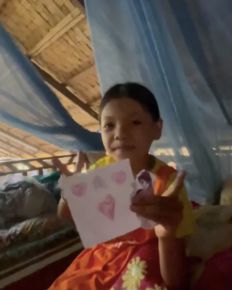
Volunteering as an English teacher in Vang Vieng, Laos! ✨

A day volunteering in Tanzania ✨

Teaching English to kids in Indonesia 👩🏻🏫

A day volunteering in Bali🌞

Looking for a cleaner helper at our party hostel in Poland!

Homestay powiat grodziski, Poland
Teach English in Grodzisk Maz, Poland!

Be our pub crawl leader and enjoy the nightlife in Poland!!

Night receptionist in the party hostel in Krakow!

Help us in the reception at our party hostel in Poland!!

Be our English teacher in Warsaw!

Social media / Graphic design / videographer for a pubcrawl

Hostel Warsaw, Poland
Create an amazing atmosphere in our super chill hostel events 🌞

Reception & Bar help. Learn skills and have fun while working 🕺

Come and renovate or decorate our Pubcrawl accommodation! :)

Hostel Tatra County, Poland
Help us with daily tasks!
- Higher approval

Live an incredible experience in our Old Town Hostel in Warsaw, Poland

Chill, Artsy Hostel looking for ANIMATOR 🎶🎨in Warsaw, Poland 💯
Join the community.
Create a free Worldpackers account to discover volunteer experiences perfect for you and get access to exclusive travel discounts!
How do Worldpackers trips work?
As a member, you can contact as many hosts and travel safely as many times as you want.
Choose your plan to travel with Worldpackers as many times as you like.
Complete your profile, watch the video lessons in the Academy, and earn certificates to stand out to hosts.
Apply to as many positions as you like, and get in contact with our verified hosts.
If a host thinks you’re a good fit for their position, they’ll pre-approve you.
Get your documents and tickets ready for your volunteer trip.
Confirm your trip to enjoy all of the safety of Worldpackers.
Have a transformative experience and make a positive impact on the world.
If anything doesn’t go as planned with a host, count on the WP Safeguard and our highly responsive support team!
After volunteering, you and your host exchange reviews.
With positive reviews, you’ll stand out to hosts and get even more benefits.

Dates & Availability
Eligible participant start and end dates.
Summer Work Travel participants can spend a total of 4 months in the United States, spending their summer breaks from university working and traveling around the country. The U.S. Department of State regularly updates its Official Country Eligibility Dates , but participants' actual availability dates depend significantly on their university academic calendars. Eligible Work Travel participant start and end dates are listed below by season.
All country eligibility dates are approved and published by the U.S. Department of State .
TESTIMONIALS
What our hosts have to say
Intrax tours are run very smoothly, and communication with the Intrax staff before and during the tour was well-coordinated. On the tour, I was impressed by the overall quality of Intrax's students, who were professional and had good English skills.
Lagoon has found that the international participants bring an added culture that our local employees and park guests have come to love. We could not imagine our Lagoon team without these great students.
Five years ago I was introduced to Intrax and now I won’t use anybody else because I love Intrax. I love everybody I work with and the quality of students they bring. The J-1 program is absolutely one of the best things for American business, for diversity and to learn different cultures.
OUR FEATURED STORIES
Everyone has a story
Discover stories and tips from our students, hosts and team.

International Women's Day: Interview with Chef Erika Tucker

Williamsburg "Coffee with Cops" Event Engages International Students from Around the World

Women's History Month: Interview with Intrax President, Marcie Schneider
Connecting people and cultures through work and travel.
First-timer's guide to Poland

Sep 29, 2023 • 7 min read

Everything you need to know about visiting Poland for the first time © Imgorthand / Getty Images
Supported by
Poland has a long, fascinating, sometimes tragic history, played out against a backdrop of royal castles and palaces, picturesque old towns and incredible landscapes.
From the Carpathian Mountains in the south to the Great Masurian Lakes in the north, Poland is a dream destination if you’re up for an activity-driven vacation – hiking, cycling and kayaking opportunities are abundant, plus there’s skiing in the winter.
If urban pleasures are more your thing, vibrant cities such as the capital Warsaw , the atmospheric old capital Kraków , and revamped 19th-century industrial powerhouse Łódź do not disappoint. Each offers masses of cultural attractions alongside delicious dining and lively nightlife scenes – all at very affordable prices.
As Poland is a big country packed with travel possibilities, you’re sure to have questions. Here are some tips and practical advice on how to get the most out of your first trip to Poland.
When should I go to Poland?
There’s no time of the year to specifically avoid when scheduling a trip. For fine weather and the chance to join summer festivals and events such as Kraków’s Jewish Culture Festival and Warsaw’s Summer Jazz Days , come between May and early September.
Towns and cities come alive as the warmer temperatures tempt everyone outside for alfresco dining and drinking. This is peak season, too, for visiting Poland’s 23 national parks.
The countryside in spring and autumn can also be very beautiful. Winter is the quietest season, except in ski resorts such as Zakopane . Come prepared for frigid temperatures and sloshing through snow and rain.
Compensations include low season rates at hotels and plenty of excellent museums in the major cities in which to shelter from the elements. Autumn through early spring is also when performing arts institutions such as Warsaw’s Teatr Wielki and Filharmonia Narodowa run their season of top-grade shows.

How much time do I need to visit Poland?
Two, or better, three days is the minimum needed for a short city break to either Warsaw or Kraków. You won’t have enough time to cover everything, but you will be able to get a feel for these places and tick off the main attractions.
If you’re prepared to move around quickly, you could cram in more of Poland over 10 days to two weeks, adding to your itinerary metropolises such as Gdańsk (also close to the Baltic seaside resort of Sopot ) and Łódź, as well as smaller historic towns like the artists’ retreat Kazimierz Dolny and Zamość , a perfectly preserved 16th-century Renaissance town.
Have a month to spare? Now you’re talking! This will give you the opportunity to explore rural backwaters and national parks such as World Heritage-listed Białowieża National Park , home to some 800 free-roaming European bison, Poland’s national symbol and Europe’s largest land mammal; and Karkonosze National Park with its spectacular Ice Age glacier-carved landscapes.
Is it easy to get in and around Poland?
Poland is tethered to the world by international flights. The capital’s main airport is the central Warsaw Chopin Airport , with Modlin Airport , 39km (24 miles) north of the city, handling budget carriers.
Other international airports include Gdańsk Lech Wałęsa Airport, Katowice Airport, Kraków John Paul II International Airport, Łódż Airport and Wrocław Airport . There are also excellent rail and bus links, especially with Western European neighbors, including overnight train services to Berlin and Vienna .
Getting around Poland itself is a breeze. There’s a comprehensive system of buses and trains offering both frequent services and affordable prices. For more remote parts, including nearly all the national parks, you’ll really need your own set of wheels.
Hiring a car is straightforward and the roads have vastly improved in recent years (although you will encounter some unsealed roads in the most rural regions). Major cities and towns all have decent public transport, and you can easily cover historic old town centers on foot.
Top things to do in Poland
Kraków, the former royal capital, is a stunner with its heady blend of history and harmonious architecture. At its heart are the vast Rynek Główny, Europe’s largest medieval marketplace, and the magnificent Wawel Royal Castle , on a hill above the Old Town.
But that's just the start – every part of the city is fascinating, from the former Jewish district of Kazimierz and its lively nightlife to the atomic fallout shelters of Nowa Huta .
Warsaw had to be almost completely rebuilt after WWII. The powerful Warsaw Rising Museum focuses on the darkest hours of WWII, while the Museum of Warsaw superbly documents the city's rise, fall and resurrection. Also don’t miss the award-winning POLIN Museum of the History of Polish Jews , and regal Wilanów Palace and surrounding lush parkland.
Toruń , a walled Gothic city on the Vistula River, miraculously escaped WWII intact. Wander through the UNESCO-listed Old Town crammed with museums, churches, grand mansions and squares. When you’re flagging, perk up with a peppery gingerbread cookie, Toruń’s signature snack, which you can make yourself at the Gingerbread Museum .
The UNESCO-listed Białowieża National Park holds one of Europe’s last vestiges of primeval forest, which you can visit in the company of a guide. The bison, which was once extinct outside zoos, has been successfully reintroduced here, although your best bet for seeing these magnificent animals is the region’s European Bison Show Reserve .

My favorite thing to do in Poland
I’m a huge fan of street art and Łódź has embraced this public form of creative expression unlike anywhere else in Poland - the city is practically one giant art gallery! There are well over 200 public works of art ranging from massive painted murals to installations involving neon, nails and porcelain tiles.
Among my favorites are Pasaż Róży, a dazzling courtyard completely plastered with mirror fragments arranged in swirling rose patterns, and Wiedźmin, a 70m tall mural designed by Jakub Rebelka on the sides of adjacent apartment blocks – it’s a homage to the Witcher series of fantasy books by Łódź-based author Andrzej Sapkowski.
How much money do I need for Poland?
Like everywhere in Europe in recent times, prices have been rising in Poland. That said, the country offers great value, especially when it comes to accommodation, dining out and entertainment. Getting around by public transport is also a bargain.
- Hostel room: 60 zł
- Basic room for two: 200 zł
- Self-catering apartment (including Airbnb): 120 zł
- Public transport ticket: 3.40 zł
- Coffee: 15-20 zł
- Sandwich: 15 zł
- Dinner for two: 150-200 zł
- Beer/pint at the bar: 12 zł
Is Poland part of the EU?
Yes, which means if you’re crossing into the country from neighboring EU countries – the Czech Republic (Czechia), Germany , Lithuania and Slovakia – there are no border formalities. However, rather than the euro, Poland’s national currency is the złoty (zł, sometimes also abbreviated as PLN) which dates back to the 14th century.
Most places accept card or electronic payments but sometimes you will need to pay in cash so it’s handy to keep some money in your wallet.
How easy is it to get online?
Very easy. Depending on your home mobile phone/internet plans, you should be able to surf the web and stay in touch using a smartphone or tablet. There are plenty of wifi hotspots and some of them are free.

What’s Polish food like?
Locals like nothing better than scoffing comfort foods such as pączki (rose-jam filled doughnuts) or a plate of pierogi , dough dumplings stuffed with anything from cottage cheese, potato and meat to blueberries or other fruits.
Traditional cooking is rustic and flavorful and can be summed up by Poland’s signature kiełbasa sausages. These are usually made with pork and various seasonings, though other meats, like beef and veal, can be added.
Beyond such staples Polish cuisine also includes hearty soups and dishes such as beef tartare. In the major cities and towns, there’s a wide choice of world cuisines alongside creative renditions of vegetarian and vegan dishes.
Editor's note: This article was sponsored by Poland NTO after the city was selected for Lonely Planet's Best in Travel 2024. Sponsors do not influence a destination's inclusion in Best In Travel, which is determined solely by Lonely Planet's editorial team.
Supported by Poland NTO
As a travel entertainment and inspirational media outlet, we sometimes incorporate brand sponsors into our efforts. This activity is clearly labeled across our platforms.
Funding for this story is provided by Poland NTO. All editorial views are those of Lonely Planet alone and reflect our policy of editorial independence and impartiality.
With sponsored content, both Lonely Planet and our brand partners have specific responsibilities:
Brand partner
Only provides financial support and their logo. Doesn't make revisions or approve the story.
Lonely Planet
We fully control the creative and editorial approach, just like any other featured story.
Explore related stories

Destination Practicalities
Feb 26, 2024 • 4 min read
Choose the best time for your visit to Prague with this seasonal guide to what's happening in Czechia's capital.

Feb 23, 2024 • 5 min read

Jan 30, 2024 • 17 min read
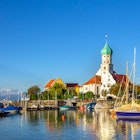
Jan 19, 2024 • 11 min read

Jan 5, 2024 • 20 min read

Dec 19, 2023 • 6 min read

Nov 11, 2023 • 8 min read

Nov 6, 2023 • 5 min read

Oct 20, 2023 • 8 min read
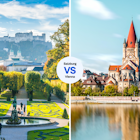
Oct 9, 2023 • 7 min read
Cookies on GOV.UK
We use some essential cookies to make this website work.
We’d like to set additional cookies to understand how you use GOV.UK, remember your settings and improve government services.
We also use cookies set by other sites to help us deliver content from their services.
You have accepted additional cookies. You can change your cookie settings at any time.
You have rejected additional cookies. You can change your cookie settings at any time.
- Business and industry
Travel to Poland for work
Check if you need a visa or permit to work in Poland and how to get one if you do.
This guide is for British citizens travelling for business or other work purposes. It explains what employers, employees, or the self-employed need to do if they need a visa, work permit or residence permit.
This information is provided as a guide only. You must always check the exact application process and document requirements with Poland’s embassy or immigration authorities .
Entry requirements
If you’re going to Poland to work (or any other EU country , Switzerland, Norway, Iceland or Liechtenstein) you must make sure you meet passport and other travel requirements .
Poland is in the Schengen area . If you’re travelling for business for up to 90 days in a 180-day period, you may be able to do some business-related activities without needing a visa or permit, such as attend business meetings. It does not matter how many countries you visit in the Schengen area. Your total stay must be no more than 90 days in every 180 days. The 180-day period keeps ‘rolling’.
If you’re staying for longer, or for other types of work, you may need a visa or permit.
The Polish authorities are responsible for setting and enforcing entry rules. They decide which activities need a visa or permit, or which may be exempt.
You must always check with Poland’s embassy or immigration authorities before you travel, to make sure you meet their legal requirements.
If you’re working in more than one country, you need to check the entry rules of each country.
If you need a passport, visa or permit, you should apply well in advance of travel.
Visa and permit documents
This guide explains the general application process for some of the visa or permit types available in Poland. It includes a checklist of documents that you’ll usually need to include when applying.
It may not cover all scenarios so you must always check the exact application process and document requirements with Poland’s immigration authorities or embassy in the UK .
You must also check what format the documents should be presented in, including if they must be:
- ‘legalised’ (with an apostille) or notarised
- originals, or if copies are acceptable
- signed in ink (a wet signature), or if they can be signed electronically (an e-signature)
- dated within a certain period of time, such as 30 days before you submit your application
Countries often use the terms visa, work permit and residence permit differently. For example, some may refer to a work permit as a visa.
This guide uses the same terms used in Poland, so you know which ones to use when speaking to Poland’s authorities.
Check if you need a visa or permit
You do not need a visa or permit if you’re travelling to Poland for up to 30 days for:
- running or attending job interviews
- going to court as witness
- attending trade fairs
- attending board meetings
- meeting clients or customers (including entertainment like eating at a restaurant)
- meeting colleagues, contractors or sellers
- internal auditing
- post-meeting productive work
- providing legal advice to a client
- fact-finding visits
- negotiating, signing and executing deals or contracts
- attending, speaking or presenting at a conference
- supervising the work of a vendor or contractor
- supervising and managing a team
- team building activities
- receiving classroom-based or on-the-job training
- shadowing someone’s job
These activities are covered by the Schengen visa waiver .
Border checks
At the border, you may be asked to show:
- proof of return travel, such as plane or train tickets
- health insurance that covers your stay
- proof of accommodation for your entire stay
- enough money for the duration of your trip
- an invitation letter from your employer explaining your trip
Check Poland’s exemptions
Certain types of work and activities do not require a visa or permit because they’re exempt.
All countries have their own exemptions. What may be exempt in one country may not be in another. You should always check with the country’s authorities.
The following may not require a visa or permit in Poland if they’re for up to 90 days in a 180-day period:
- foreign language teachers
- members of the armed forces and civilian staff working for the non-Polish military based in Poland, or delegates implementing an armament programme under an agreement with Poland
- presenters of scientific or artistic issues
- mass media, press, radio and TV correspondents, photographers and filmmakers
- artists, actors, singers, dancers, orchestra conductors, instrumentalists, and mime artists
- athletes taking part in sports competitions or international events and those working in connection with these events
- work for churches and religious associations
- work for members of the European Parliament
The following may not require a visa or permit in Poland if they’re for up to 3 months:
- carrying out technical installations, repairs and maintenance, supplying technical equipment and training clients how to use it, as long as your UK employer is the producer
- training employees of a company in Poland who purchased technology from your UK employer
- collecting ordered technological equipment, machinery or other equipment as long as it is produced by an organisation in Poland
Working on a short-term assignment
You can work without a visa or permit at:
- a Polish branch office, for up to 30 days in a calendar year
- a client site, for up to 30 days in a 6-month period
You need a work permit if you’re doing one of the following:
- working for an employer that does not have a branch, plant or any other activity in Poland
- providing a temporary and one-off service
You have to keep your UK employment contract and stay on UK payroll.
Intra-company transfer permits (EU ICT) from other countries
If you have an EU ICT from another country you can work in Poland for up to 90 days in a 180-day period if you’re transferred to a Polish branch.
You may be able to work in Poland for longer if the circumstances justify a stay for longer than 3 months. In this case, the permit will only be granted for the validity period of the residence document issued by the original host country.
The company in Poland must be able to demonstrate capital and organisational relations with your UK-based employer.
Your employer has to notify the Head of the Office for Foreigners before you start working.
Exemptions are covered by the visa waiver.
Register your address
You have to register your address with the local town hall if you’re staying in Poland for more than 30 days.
Show proof of exemption
You need to be able to show proof that you’re exempt to the authorities on request. This could be:
- an assignment letter
- an employment confirmation letter
- proof of required qualifications, such as a degree or professional certificate
Further checks
If you’re not sure if you need a visa or permit to travel you can get advice from Poland’s embassy or immigration authorities .
Applying for visa or permit
This guide outlines the steps required for each visa or permit to help you prepare, but you’ll need to check the exact rules and processes with Poland’s embassy or immigration authorities .

Taking your family
You may be able to apply for dependant permits if you want family members to join you. Marriages need to be recognised in Polish law.
Find out more about taking your family with you .
Long-term permits
You need to apply for a long-term permit if you’re in Poland because you’re:
- transferring from a UK-based company to a Polish branch
- working for a company in Poland on a Polish contract
- providing services to a client in Poland
- carrying out self-employed work
- conducting research work
Long-term permits are valid for up to 3 years depending on which one you need.
The application process happens in 3 parts:
Your employer applies for a work permit.
You apply for a D visa at the Polish consulate in the UK.
You apply for a temporary residence work permit once in Poland, if you need to stay longer than the duration of your visa.
Transferring to a Polish branch of a UK-based company
You need to apply for one of these long-term permits if your UK-based company moves you to a branch in Poland:
- Type C work permit if you’re working for more than 30 days in a calendar year
- Polish EU intra-company transfer (EU ICT) permit if you’re highly skilled and working for up to 3 years, or 1 year if you’re a trainee
Type C work permit
To qualify for a Type C work permit you must:
- keep your UK employment contract
- stay on UK payroll and be paid at least the minimum wage for the province where you’ll be working
This Type C permit takes 2 to 5 months to get. It’s valid for up to 3 years and you can extend it.
Family members can join you as dependants once your permit has been secured. Find out more about taking your family with you .
How it works
You need to check with Poland’s authorities on the exact process. This is a rough guide to help you prepare.
Your employer submits a Type C work permit application to the provincial office (local authority).
Once approved you apply for a D visa at the Polish consulate in the UK.
You register your address at your local town hall in Poland.
You apply for a temporary residence permit at the immigration office in Poland, if you need to stay longer than the duration of your D visa.
Application documents
Poland’s authorities may request different documents at different stages of the process. Usually, they need:
- completed permit application forms
- UK passport for you and any dependants, valid for 6 months
- 1 standard passport photo (35mm x 45mm) for each applicant
- marriage certificate, if married
- birth certificates for any children
- documentation showing your UK employer’s legal status, such as a certificate of incorporation
- business profile for the UK company including legal name, registered address and names of representatives, issued by the registry authorities, such as Companies House
- assignment letter signed by a representative of the UK company
- organisational charts or documents showing the relationship between your UK employer and branch in Poland
- declaration that the UK employer doesn’t have a criminal record, signed by an authorised representative of the UK company
- National Court Register (KRS) excerpt for the Polish company
- accommodation lease agreement (required once in Poland)
- confirmation of insurance covering the whole period of the assignment
EU intra-company transfer (EU ICT)
You need a Polish EU ICT permit if your UK-based employer transfers you to a branch in Poland for:
- up to 3 years
- 1 year if you’re a trainee
You can’t use this permit for trips to Poland for less than 90 days.
To qualify you must:
- have a bachelor’s level degree or at least 3 years’ relevant work experience
- have specialist knowledge in the field
- have worked for the UK company for at least 12 months, or 6 months if you’re a trainee
- be a manager, specialist or trainee
- have proof that you can return to the UK company once your assignment ends in Poland
- earn at least the minimum wage for the province where you’ll be working
- be on UK payroll
The ICT takes 3 to 4 months to get. You can’t extend it beyond 3 years, or 1 year if you’re a trainee.
Family members can join you on a long-term EU ICT permit. Find out more about taking your family with you .
The Polish branch submits a residence permit application to the provincial office (local authority).
Once issued, you apply for a D visa at the Polish consulate in the UK.
You submit your fingerprints and collect your residence permit card at the immigration office once in Poland.
- completed permit application form
- proof of temporary address in Poland, such as a hotel reservation or lease agreement
- proof of professional qualifications
- UK employment contract
- proof that you’re returning to the UK at the end of your assignment
- assignment letter from the UK employer
- business profile for the UK company including legal name, registered address and names of representatives, issued by registry authorities, such as Companies House
- organisational charts or documents showing the relationship between your UK employer and the branch in Poland
- declaration that the UK employer and company in Poland don’t have criminal records, signed by authorised representatives of both companies
- proof of health insurance covering the whole period of the assignment, for you and any dependants
- proof of travel date to Poland, such as plane tickets or hotel reservations
Working for a company in Poland on a Polish contract
You need a type A work permit if you’ve been offered a Polish employment contract for up to 3 years.
- have an offer of employment from a Polish company
- have relevant experience and qualifications
- meet minimum monthly income requirements – check for up-to-date amounts with the Polish authorities as they may change over time
- be placed on a Polish payroll
This permit takes 2 to 5 months to get. It’s valid for up to 3 years and you can extend it.
Family members can join you as dependants with this permit type. They’re not allowed to work in Poland. Find out more about taking your family with you .
Your employer carries out a labour market test with the local labour office unless you have a skills shortage job .
Your employer submits a work permit application to the provincial office (local authority).
You apply for a temporary residence permit at the immigration office in Poland, if you need to stay longer than the duration of your D visa. This could be either an EU Blue Card or Single Permit.
- valid National Court Register (KRS) documentation
- results from the labour market test, if applicable
- declaration that the Polish employer doesn’t have a criminal record, signed by a board member or director
- documents confirming that you meet the job requirements, such as a diploma certificate, training certificates or a letter setting out your professional experience
Providing services to a client in Poland
You need a type D work permit if your UK employer has a contract or work order with a company in Poland for which you will be providing a service.
- keep your UK employment
- stay on UK payroll
Family members can join you as dependants with this permit type. Find out more about taking your family with you .
Your employer submits a work permit application (same form for type D) to the provincial office (local authority).
You register your address at your local town hall in Poland, if you’re staying for longer than 30 days.
- standard passport photo (35mm x 45mm) for each applicant
- assignment letter signed by UK company representative
- power of attorney signed by UK company representative
- work order or service agreement between the UK and Polish companies
- declaration that the UK employer doesn’t have a criminal record, signed by a board member or director
- national business registry number for the Polish company
- company tax number for the Polish company
- proof of health insurance for you and any dependants
- letter of invitation from Polish company
Self-employed work
There are no work permit options for self-employed people coming from the UK.
If you want to carry out self-employed work you must already be living in Poland and have one of the following residence permits:
- permanent residence permit
- long-term EU residence permit
- dependant residence permit for joining your family
- residency permit issued because you married a Polish citizen
- student residence permit
- refugee or similar status, such as consent to stay for humanitarian reasons or temporary protection
Research work
You need a temporary residence permit for scientific research if you’re conducting scientific research or development work with a research organisation in Poland.
To qualify you must have:
- at least a master’s degree that allows you to start a PhD
- a hosting agreement with an approved research organisation in Poland
- proof that the research organisation is covering your living expenses
- proof that the research organisation is paying for your return travel to the UK 6 months after your position ends
The research permit takes 2 to 4 months to get. It’s valid for up to 3 years and you can extend it.
You register your address at your local town hall in Poland, if you’re staying longer than 30 days.
You submit a temporary residence permit application to the provincial office (local authority).
- master’s level or higher degree certificate
- hosting agreement with an approved research organisation
- statement from the research organisation confirming they will cover your living expenses and return travel
- proof you have enough money to cover your stay
Polish government guidance
Read official Polish government information on:
- visiting Poland from outside the EU
- visas and permits
Check for travel changes
European governments may update or change their rules without notice.
You should always check general travel advice for Poland , for updates on issues such as safety and security, entry requirements and travel warnings before travelling, or planning to travel.
Content reviewed. No changes made. (The information provided is up-to-date as of 11 September 2023.)
Content reviewed. No changes made. (The information provided is up-to-date as of 21 July 2023).
Content reviewed. No changes made. (The information provided is up-to-date as of 22 March 2023).
Content reviewed. No changes made. (The information provided is up-to-date as of 9 January 2023).
Removed the EU Blue Card option when working for a company in Poland on a Polish contract - you can only apply for this if you're already in Poland. You need a type D work permit, rather than a type E, for providing services to a client in Poland. The information provided is up-to-date as of 23 September 2022.
Corrected link for family members and research work. The information provided is up-to-date as of 30 November 2021.
First published.
Related content
Is this page useful.
- Yes this page is useful
- No this page is not useful
Help us improve GOV.UK
Don’t include personal or financial information like your National Insurance number or credit card details.
To help us improve GOV.UK, we’d like to know more about your visit today. We’ll send you a link to a feedback form. It will take only 2 minutes to fill in. Don’t worry we won’t send you spam or share your email address with anyone.
Situation in Haiti March 29, 2024
U.s. citizens in haiti, update january 10, 2024, information for u.s. citizens in the middle east.
- Travel Advisories |
- Contact Us |
- MyTravelGov |
Find U.S. Embassies & Consulates
Travel.state.gov, congressional liaison, special issuance agency, u.s. passports, international travel, intercountry adoption, international parental child abduction, records and authentications, popular links, travel advisories, mytravelgov, stay connected, legal resources, legal information, info for u.s. law enforcement, replace or certify documents.
Before You Go
Learn About Your Destination
While Abroad
Emergencies
Share this page:
Travel Advisory July 26, 2023
Poland - level 1: exercise normal precautions.
Reissued with obsolete COVID-19 page links removed. Exercise normal precautions in Poland.
Read the country information page for additional information on travel to Poland.
If you decide to travel to Poland:
- Enroll in the Smart Traveler Enrollment Program ( STEP ) to receive Alerts and make it easier to locate you in an emergency.
- Follow the Department of State on Facebook and Twitter .
- Review the Country Security Report for Poland.
- Visit the CDC page for the latest Travel Health Information related to your travel.
- Prepare a contingency plan for emergency situations. Review the Traveler’s Checklist .
Embassy Messages
View Alerts and Messages Archive
Quick Facts
Six months remaining validity strongly recommended; at least three months remaining validity beyond planned departure from the Schengen area is required
Must have at least one page
Not required for stays under 90 days
10,000€ (euros or equivalent)
Embassies and Consulates
U.s. embassy warsaw.
Aleje Ujazdowskie 29/31 00-540 Warsaw, Poland Telephone: +48 (22) 504-2000 American Citizens Services: +48 (22) 504-2784 Emergency After-Hours Telephone: +48 (22) 504-2000 Fax: +(48) (22) 504-2088 Email: [email protected]
U.S. Consulate General Krakow Ulica Stolarska 9 31-043 Kraków, Poland Telephone: +48 (12) 424-5100 American Citizens Services: +48 (12) 424-5129 Emergency After-Hours Telephone: +48 (22) 504-2000 Fax: +(48) (12) 424-5103 Email: [email protected]
U.S. Consular Agent Poznan Ulica Paderewskiego 8 61-770 Poznan Telephone: +(48) (61) 851-8516 Emergency After-Hours Telephone: +(48) (22) 504-2000 Fax: +(48) (61) 851-8966 Email: [email protected]
Destination Description
Learn about the U.S. relationship to countries around the world.
Entry, Exit and Visa Requirements
U.S. citizens are restricted from entering Poland from Belarus and Russia unless they meet one of the exceptions currently in place. You may find the list of exceptions on the Polish Border Guard website .
U.S. citizens who do not meet one of the listed exceptions, but who want to return to the United States from Belarus by transiting through Poland, may seek a special permit to enter Poland only at the border crossing point in Brest-Terespol.
Traveling Through Europe : If you are planning to visit or travel through European countries, you should be familiar with the requirements of the Schengen Agreement.
- Your passport should be valid for at least three months beyond the period of stay. If you plan on transiting a Schengen country, review our U.S. Travelers in Europe page .
- You will need sufficient proof of funds and a return plane ticket .
- For additional information about visas for the Schengen area, see the Schengen Visa page.
Military/Status of Forces Agreement (SOFA) Travelers : Active-duty U.S. military personnel may enter Poland under the SOFA with proper Department of Defense (DOD) identification and travel orders. All SOFA family members, civilian employees, and contractors must have valid passports. Active-duty military personnel should obtain a tourist passport before leaving the United States to accommodate off-duty travel. DOD travelers should consult with their unit for clearance before leaving the United States.
If you are transiting Poland en route to other countries, know all entry and exit requirements for your final destination . You may be denied boarding for your connecting flight if you have incorrect documentation or insufficient validity on your passport. If you are denied boarding, you will need sufficient funds and a return airline ticket or an itinerary that does not require re-entry into the Schengen zone in order to return to the United States.
For further information on entry requirements and current visa information, please contact the consular section of the Embassy of Poland , 2224 Wyoming Avenue, N.W., Washington, D.C. 20008, (202) 499-1700, or a Polish consulate in Chicago, Los Angeles, New York, or Houston.
The U.S. Department of State is unaware of any HIV/AIDS entry restrictions for visitors to or foreign residents of Poland.
Find information on dual nationality , prevention of international child abduction, and customs on our websites.
Safety and Security
Terrorism: Terrorist groups and those inspired by such organizations are intent on attacking U.S. citizens abroad. Terrorists are increasingly using less sophisticated methods of attack – including knives, firearms, and vehicles – to more effectively target crowds. Frequently, their aim is unprotected or vulnerable targets, such as:
- High-profile public events (sporting contests, political rallies, demonstrations, holiday events, celebratory gatherings, etc.)
- Hotels, clubs, and restaurants frequented by tourists
- Places of worship
- Shopping malls and markets
- Public transportation systems (including subways, buses, trains, and scheduled commercial flights)
For more information, see our Terrorism page.
Crime: Poland has a low crime rate overall, the highest rates of crime rates occur in major cities.
- Safeguard your belongings in public areas . Thieves and pickpockets operate at major tourist destinations, railroad stations, and on trains (particularly overnight trains), trams, and buses. Report incidents of theft to the police.
- Do not leave valuables in plain sight inside vehicles .
- If someone directs you to pull over or signals that something is wrong with your car, continue driving until you reach a safe spot (such as a crowded gas station, supermarket, or a police station) to inspect your vehicle.
- Only change money at banks or legitimate exchange kiosks (kantor). ATMs at commercial banks, large hotels, shopping malls, and airports are safest.
- While casinos and gaming establishments are government-regulated, some are affiliated with or have attracted the interest of organized crime.
- Avoid adult entertainment venues . Such establishments have been known to present foreign customers with inflated charges and threaten those who refuse to pay. There have been some incidents of suspected drink spiking associated with these venues.
- Travel in a group when going out at night to nightclubs, discos, bars, or high-tourism areas, such as the Market Square in Krakow and Old Town in Warsaw.
Demonstrations occur frequently. They may take place in response to political or economic issues, on politically significant holidays, and during international events.
- Demonstrations can be unpredictable; avoid areas around protests and demonstrations.
- Past demonstrations have turned violent.
- Check local media for updates and traffic advisories.
The Travel Advisory and Security Alerts can be found on the U.S. Mission to Poland’s website .
International Financial Scams: See the Department of State and the FBI pages for information.
Victims of Crime: U.S. citizen victims of sexual assault should first contact the local police. Report crimes to the local police by calling 112 (multilingual emergency dispatch centers serving Poland and EU countries), and contact the U.S. Embassy in Warsaw at +48 (22) 504-2000 or the U.S. Consulate in Krakow at +48 (12) 424-5100. Local authorities are responsible for investigating and prosecuting crimes.
See our webpage on help for U.S. victims of crime overseas .
- Provide a list of health care providers in Poland
- Assist you in reporting a crime to the police
- Contact relatives or friends with your written consent
- Explain the local criminal justice process in general terms
- Provide a list of local attorneys
- Provide information on victim’s compensation programs in the United States. A list of organizations providing assistance programs for victims of crimes in Poland is available on the website of the Ministry of Justice here .
- Provide an emergency loan for repatriation to the United States and/or limited medical support
- Help you find accommodation and arrange flights home
- Replace a stolen or lost passport
Domestic Violence: U.S. citizen victims of domestic violence should contact local authorities and the U.S. Embassy in Warsaw or the U.S. Consulate in Krakow for assistance.
Tourism: The tourism industry is generally regulated. Rules (with regards to best practices and safety inspections) are regularly enforced. Hazardous areas/activities are identified with appropriate signage and professional staff is typically on hand in support of organized activities. In the event of an injury, appropriate medical treatment is widely available throughout the country. Outside of a major metropolitan center, it may take more time for first responders and medical professionals to stabilize a patient and provide life-saving assistance. U.S. citizens are encouraged to purchase medical evacuation insurance .
Local Laws & Special Circumstances
Criminal Penalties: You are subject to local laws. If you violate local laws, even unknowingly, you may be arrested, imprisoned, or deported.
A U.S. passport will not help you avoid arrest or prosecution.
Furthermore, some crimes are also prosecutable in the United States, regardless of local law. For examples, see our website on crimes against minors abroad and the Department of Justice website.
Arrest Notification: If you are arrested or detained, ask the police or prison officials to notify the U.S. Embassy immediately . Under Polish law, a person with Polish and U.S. citizenship is deemed to be a Polish citizen; however, dual U.S.-Polish nationals may still ask to see a U.S. consular officer. See our webpage for further information.
Special Circumstances: Polish Law prohibits possession of firearms or ammunition without proper permits.
In Poland, it is illegal to possess, carry, transport, import or export arms or ammunition without proper authorization. Polish law broadly defines the meaning of “arms” to include items that may put life or health at risk, which may include parts of firearms or ammunition. Travelers have been arrested who were in possession of military items without proper permits. Please visit the Government of Poland’s website to find out more about obtaining a permit and our website on traveling with firearms .
Polish Customs enforces strict regulations concerning the export of items such as works of art. Contact the Polish Embassy in Washington, D.C., or a Polish consulate in Chicago, Los Angeles, New York, or Houston for specific information regarding customs requirements.
Taking pictures of Polish military buildings or other national security/restricted objects is illegal.
Penalties are severe for possessing, using, or trafficking illegal drugs in Poland. Expect long jail sentences and heavy fines if convicted.
Local police can stop a car and request identification to establish identity, and may ask the driver subsequent questions.
Individuals establishing a business or practicing a profession that requires additional permits or licensing should seek information from the competent local authorities prior to practicing or operating a business. Information about conducting business in Poland can be found at the U.S. Embassy’s website .
Counterfeit and Pirated Goods: Although counterfeit and pirated goods are prevalent in many countries, including Poland, they may still be illegal according to local laws. Possessing or purchasing them is against the law. You may be subject to heavy fines and even imprisonment. You must also relinquish the items if you bring them back to the United States. For more information, see the U.S. Department of Justice website and the Polish Ministry of Finance Customs Department.
Faith-Based Travelers: See the following webpages for details:
· Faith-Based Travel Information
· International Religious Freedom Report – see country reports
· Human Rights Report – see country reports
· Hajj Fact Sheet for Travelers
· Best Practices for Volunteering Abroad
LGBTQI+ Travelers : There are no legal restrictions on either consensual same-sex sexual conduct between adults or the organization of LGBTQI+ events in Poland. Polish law prohibits discrimination in employment on the basis of sexual orientation or gender identity and the government enforces these provisions. The social acceptance of LGBTQI+ individuals is not as prevalent as in the United States, though polling indicates tolerance is steadily increasing. Some politicians have made derogatory comments about LGBTQI+ persons. Media have not recently reported on physical and verbal attacks against LGBTQI+ persons, but community members have reported concerns about their physical safety. Travelers identifying openly as LGBTQI+ may face harassment. The practice of so-called conversion therapy is legal and offered on a voluntary basis. See our LGBTQI+ Travel Information page and section six of our Human Rights report for further details.
Travelers with Disabilities : Polish law prohibits discrimination against persons with physical, sensory, intellectual, or mental disabilities, but some discrimination occurs. Polish law states that buildings should be accessible for persons with disabilities, but in practice, many buildings remain inaccessible. Newer public trains, vehicles, and stations may be accessible, but older ones are not. Wheelchair users will find many challenges throughout the country. Service animals are generally allowed in public buildings and on transportation. Pedestrian crossings at intersections in large cities are generally equipped with audible crossing signals.
Students: See our students abroad page and FBI travel tips .
Women Travelers : See our travel tips for women travelers .
COVID-19 Testing: COVID PCR and antigen tests are available for U.S. citizens in Poland and results are available within 24 hours.
Adequate medical care is available, but the quality of hospitals and nursing support may not be comparable to U.S. standards in all regions of Poland . Emergency services may be lacking in small towns and rural areas. Physicians are generally well-trained, and many younger doctors speak English (nurses and staff may not). While medication and treatment are generally substantially less costly than in the United States, doctors and hospitals often expect cash payment prior to treatment . Private hospitals usually require advance payment or proof of adequate insurance before admitting a patient. Patients bear all costs for transfer to or between hospitals. Medication, while generally available, may not be U.S. brand-name drugs.
For emergency services in Poland, dial 112 . Ambulance services are widely available.
The U.S. Embassy maintains a list of doctors and hospitals . We do not endorse or recommend any specific medical provider or clinic.
The Embassy does not pay medical bills . Be aware that U.S. Medicare/Medicaid does not apply overseas. Most hospitals and doctors overseas do not accept U.S. health insurance.
Medical Insurance: Make sure your health insurance plan provides coverage overseas. Most care providers overseas only accept cash payments. See our webpage for more information on insurance overseas. Visit the U.S. Centers for Disease Control and Prevention for more information on type of insurance you should consider before you travel overseas.
We strongly recommend supplemental insurance to cover medical evacuation.
Always carry your prescription medication in original packaging, along with your doctor’s prescription. Check with the Ministry of Health Poland to ensure the medication is legal in Poland.
Vaccinations: The CDC does not recommend and there is no requirement for specific vaccinations for U.S. citizen travelers.
Further health information:
- World Health Organization
- U.S. Centers for Disease Control and Prevention (CDC)
Medical Tourism and Elective Surgery :
- Medical tourism is a rapidly growing industry. U.S. citizens traveling to Poland for medical tourism or elective surgery should understand that medical systems operate differently from those in the United States and are not subject to the same rules and regulations. Anyone interested in traveling for medical purposes should consult with their local physician before traveling and visit the U.S. Centers for Disease Control and Prevention website for more information on Medical Tourism.
- We strongly recommend supplemental insurance to cover medical evacuation in the event of unforeseen medical complications.
Pharmaceuticals :
- U.S. Customs and Border Protection and the Food and Drug Administration are responsible for rules governing the transport of medication back to the United States. Medication purchased abroad must meet their requirements to be legally brought back into the United States. Medication should be for personal use and must be approved for use in the United States. Please visit the U.S. Customs and Border Protection and the Food and Drug Administration websites for more information.
Water Quality:
- Food and water standards in Poland are similar to those in the United States. Most travelers do not need to take special food or water precautions beyond what they normally do at home. For more information please visit CDC Traveler’s Health.
Adventure Travel:
- Visit the U.S. Centers for Disease Control and Prevention website for more information about Adventure Travel .
Air Quality:
- Cities in Poland have higher air pollution levels than major U.S. cities. Especially in Krakow, levels are often above U.S. health-based standards in the winter. Air quality is often good to moderate during warmer months. Visit the European Environment Agency’s website for information on air quality in Poland.
Travel and Transportation
Road Conditions and Safety: Road conditions in Poland differ significantly from those in the United States. Poland has the third-highest road fatality rate based on population in the European Union. Driving, especially after dark, is hazardous. Roads are sometimes narrow, poorly lit, frequently under repair (especially in summer), and are often also used by pedestrians and cyclists. Pedestrians account for approximately one-third of all traffic fatalities in Poland.
- Polish roadside services, while not equal to those in the United States, are adequate. The Polish Automobile Association ( Polski Związek Motorowy Auto-Tour ) has multilingual operators and provides assistance countrywide 24/7. Call (22) 532-8403 or email [email protected] .
- The police emergency number is 997 , fire service is 998 , ambulance service is 999 , and the general emergency number is 112.
Traffic Laws: You must have a U.S. driver's license and International Driving Permit (IDP) in order to drive in Poland . U.S. citizens cannot obtain IDPs in Poland. If you stay in Poland for more than six months and continue to drive, you must obtain a Polish driver’s license. You can find information on obtaining an International Driving Permit here .
- Seat belt use is mandatory .
- Use headlights year-round at all times .
- Children under 12 must sit in rear seats . Children under 12 and shorter than 4’11” must use a child’s car seat.
- Using hand-held cell phones while driving is prohibited .
- Polish law provides zero tolerance for driving under the influence of alcohol/drugs . Prison sentences for DUI violations or accidents caused by impaired drivers can range from two to twelve years.
- Fines for traffic violations can be substantial . Non-residents are expected to pay the police officer at the time the ticket is issued. Be prepared to pay in cash in local currency.
Public Transportation : Public transportation in Poland is efficient, inexpensive, and safe. A ticket is required when boarding a bus or tram and if the ticket is not validated upon entry, you may be fined. In cities, taxis are available at major hotels and designated taxi stands, and can be ordered in advance by phone.
Avoid taxis without a company name and/or telephone number printed on the light bar . Make sure that the driver displays his or her license inside the vehicle, has a functioning meter, and uses the meter when starting your trip. At airports in Poland, including Warsaw’s Chopin Airport, only use taxis found at designated stands and avoid unregistered taxi stalls.
Apps-based Ride Sharing: Internet-based ride services, such as Uber, iTaxi, and Freenow, are legal in Poland and growing in popularity as a safe ride option. However, some internet-based ride services may not be authorized to drop off or pick up patrons in some downtown tourist areas.
See our Road Safety page for more information. Also, visit Poland’s National Tourist Office and Poland’s General Roads and Highways Authority responsible for road safety information.
Aviation Safety Oversight: The U.S. Federal Aviation Administration (FAA) has assessed the government of Poland’s Civil Aviation Authority as compliant with International Civil Aviation Organization (ICAO) aviation safety standards for oversight of Poland’s air carrier operations. Further information may be found on the FAA’s safety assessment page .
Maritime Travel: Mariners planning travel to Poland should also check for U.S. maritime advisories and alerts . Information may also be posted to the U.S. Coast Guard homeport website , and the NGA broadcast warnings .
For additional travel information
- Enroll in the Smart Traveler Enrollment Program (STEP) to receive security messages and make it easier to locate you in an emergency.
- Call us in Washington, D.C. at 1-888-407-4747 (toll-free in the United States and Canada) or 1-202-501-4444 (from all other countries) from 8:00 a.m. to 8:00 p.m., Eastern Standard Time, Monday through Friday (except U.S. federal holidays).
- See the State Department’s travel website for the Worldwide Caution and Travel Advisories .
- Follow us on Twitter and Facebook .
- See traveling safely abroad for useful travel tips.
Review information about International Parental Child Abduction in Poland . For additional IPCA-related information, please see the International Child Abduction Prevention and Return Act ( ICAPRA ) report.
Travel Advisory Levels
Assistance for u.s. citizens, learn about your destination, enroll in step.

Subscribe to get up-to-date safety and security information and help us reach you in an emergency abroad.
Recommended Web Browsers: Microsoft Edge or Google Chrome.
Check passport expiration dates carefully for all travelers! Children’s passports are issued for 5 years, adult passports for 10 years.
Afghanistan
Antigua and Barbuda
Bonaire, Sint Eustatius, and Saba
Bosnia and Herzegovina
British Virgin Islands
Burkina Faso
Burma (Myanmar)
Cayman Islands
Central African Republic
Cote d Ivoire
Curaçao
Czech Republic
Democratic Republic of the Congo
Dominican Republic
El Salvador
Equatorial Guinea
Eswatini (Swaziland)
Falkland Islands
France (includes Monaco)
French Guiana
French Polynesia
French West Indies
Guadeloupe, Martinique, Saint Martin, and Saint Barthélemy (French West Indies)
Guinea-Bissau
Isle of Man
Israel, The West Bank and Gaza
Liechtenstein
Marshall Islands
Netherlands
New Caledonia
New Zealand
North Korea (Democratic People's Republic of Korea)
Papua New Guinea
Philippines
Republic of North Macedonia
Republic of the Congo
Saint Kitts and Nevis
Saint Lucia
Saint Vincent and the Grenadines
Sao Tome and Principe
Saudi Arabia
Sierra Leone
Sint Maarten
Solomon Islands
South Africa
South Korea
South Sudan
Switzerland
The Bahamas
Timor-Leste
Trinidad and Tobago
Turkmenistan
Turks and Caicos Islands
United Arab Emirates
United Kingdom
Vatican City (Holy See)
External Link
You are about to leave travel.state.gov for an external website that is not maintained by the U.S. Department of State.
Links to external websites are provided as a convenience and should not be construed as an endorsement by the U.S. Department of State of the views or products contained therein. If you wish to remain on travel.state.gov, click the "cancel" message.
You are about to visit:
- Join as a Workawayer
- Join as a host
- Buy a gift membership
Homestays, Volunteering & Working Holidays in Poland
Important information about visiting: poland.
Meaning of the colours:
By default (toggle switch to the left) hosts who have both yellow AND green indicated for the months you have selected will be shown. If you move the toggle to the right ONLY hosts who have indicated green will be shown.
Meaning of this:
By default (toggle switch to the left) will show hosts who have ANY of the months you have chosen marked as available. This means that some of the months might be marked red (no availability.) If you need to see ALL of the months you have selected as available move the toggle to the right.
Poland
Office for Foreigners
No. Visas are issued as Schengen Visas or Polish visas by Polish consuls.
A Schengen Visa (of the “C” series) is issued when planned residence in Schengen Area Member States is up to 90 days per each 180-day period.
A Polish visa (of the “D” series) authorizes entry to Poland and a single stay or a number of stays for up to 90 days. The maximum term of validity of the Polish visa is 1 year.
A permit for temporary residence and employment is given for a period from 3 months to 3 years.
First of all, you need a permit for work (unless the requirement has been waived for you). Your future employer should get it for you. You also need to meet the general requirements for getting the visa.
National visas are issued by a Polish consul outside Poland; therefore, you can obtain full information about the visa procedure at the Polish consulate. Generally, an application for a national visa must be submitted on a special form. It is necessary to present a valid travel document that meets the following criteria:
- its validity period will expire no earlier than 3 months after the expiry of the visa you apply for;
- contains at least two blank pages;
- has been issued within the last 10 years.
Additionally, when applying for a national visa, you should present supporting documents:
- purpose and conditions of the planned stay,
- having sufficient financial resources to cover the costs of living for the entire period of the planned stay in Poland and for a return trip to the country of origin or residence, or for transit to a third country that will grant permission to enter, or the possibility of obtaining such funds in accordance with the law,
- having health insurance or travel medical insurance,
- credibility of your declarations of intention to leave the territory of Poland before the expiry of the visa,
- other circumstances specified in the application.
Yes. If you have such visa issued by any of the Schengen Area states you may travel across the whole Schengen Area for up to 90 days per each 180-day period, provided that:
– You have a valid travel document;
– You can justify the purpose, and describe the conditions, of the proposed stay;
– You have sufficient funds for subsistence or an opportunity to obtain them lawfully; and
– You are not recognized as a threat to public order, home security, public health or international relations of any of the Schengen Area Member States or of the EU Member State of the travel destination (which means you have no entry ban in their databases).
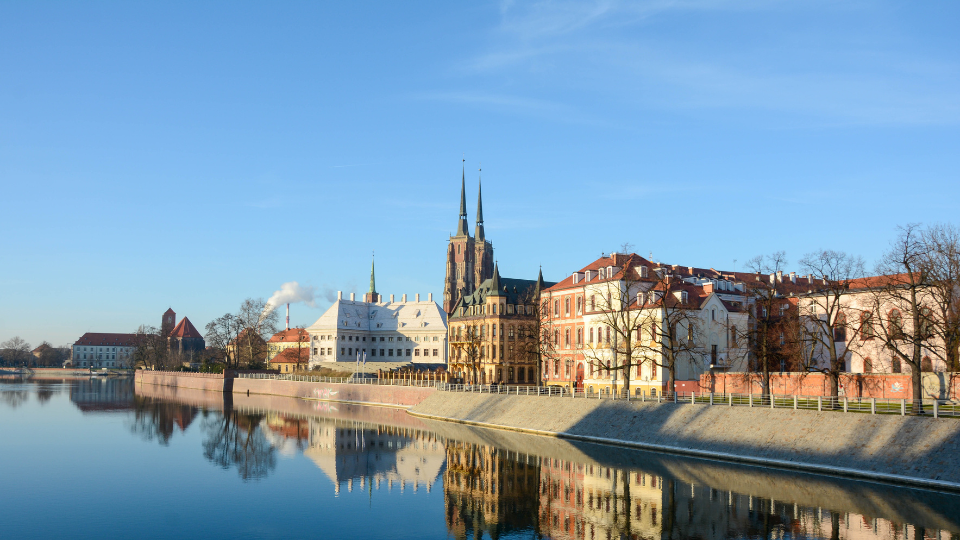
Why Poland is great place for work and life
Introduction, the job market in poland.
The job market in Poland is fantastic. There are so many opportunities for work and life here. The Polish economy is booming and there are plenty of jobs to be had. The cost of living is also very reasonable, making it a great place to live and work. If you’re looking for a great place to start or continue your career, Poland is definitely worth considering!
The cost of living in Poland
Poland is a great place to live and work for many reasons, but one of the most appealing factors is the cost of living. In general, the cost of living in Poland is much lower than in other Western European countries, and this makes it an attractive destination for expats looking to stretch their money further.
Of course, the cost of living will vary depending on your lifestyle and where you choose to live in Poland. In the capital city of Warsaw, the cost of living is higher than in other parts of the country, but still relatively affordable compared to other major European cities. Outside of Warsaw, the cost of living drops significantly, so it’s worth considering if you’re looking for a more affordable option.
Rent is one of the biggest expenses when it comes to living in Poland, but even this is relatively affordable compared to other countries. A one-bedroom apartment in Warsaw can be found for as little as $500 per month, while a three-bedroom apartment will cost around $850. If you’re looking to save even more money, consider finding a roommate or two to split the costs with.
Utilities are also reasonably priced in Poland. Water, electricity, and gas will typically cost around $100 per month for a one-bedroom apartment. Internet is also relatively affordable, with packages starting at around $20 per month. Food costs will also vary depending on your lifestyle and dietary preferences.
The quality of life in Poland
Poland is a great country to live and work in. The quality of life is high, and the cost of living is relatively low. There are many things to do and see, and the people are friendly and welcoming.
The Polish economy is doing well, and there are plenty of job opportunities for skilled workers. Wages are rising, and the standard of living is improving. Poland is an attractive destination for foreign investors, and there are plenty of opportunities for entrepreneurs.
Many foreigners move to Poland permanently
Poland is a great place to live and work for many reasons. Once you live in Poland for more than 5 years (working), you may apply for EU resident. These include the right to live and work in Poland permanently, travel freely within the European Union, and access free healthcare and education. The next step after EU resident card might be citizenship. The previous step before EU resident is TRC.
One of the biggest reasons is that it is relatively easy to obtain Polish citizenship. Unlike many other countries, Poland does not require you to have a certain amount of money in the bank or own property in order to apply for citizenship.
The process of applying for Polish citizenship is relatively straightforward. First, you must gather all of the necessary documents, including your birth certificate, marriage certificate (if applicable), and proof of residency in Poland, language certificate and other documents.

Proces uzyskania wizy pracowniczej do Polski 2024 | Procedura składania wniosków (wyjaśniona)

Can you work in Poland without speaking Polish?

Which job is the easiest to get in Poland

Office work in Poland – recruiter of foreign workers
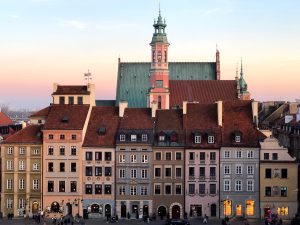
Navigating Opportunities: A Comprehensive Guide to Benefits for Indonesian Workers in Poland

How I moved from the Philippines to Warsaw with the help of Worksol Agency

Filipinos, Indonesians, Hindus and Nepalese move from the UAE to Poland – better living, working and payment conditions
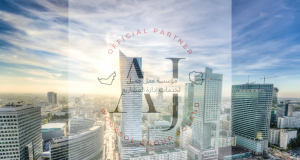
Reliable agencies from the UAE for employment in Europe
Ask a question.
Error: Contact form not found.
Order a call
JavaScript seems to be disabled in your browser. You must have JavaScript enabled in your browser to utilize the functionality of this website.
- Account Overview
- Edit My Profile
- MY RESIDENTIAL ADDRESS
- Newsletter Subscription
- My Documents
Find program for you
- All specialization
Find yourself a services
- Accommodation
- VISA & RESIDENCE CARD
Study and work in Poland / Europe
Think poland road show 2019.
Record holder in travels for studies. We are a leading company in bringing international students to Poland. We have managed to get Polish visas for over 3000 students.
Discover Poland
Sandy beaches, four seasons or maybe work opportunities? Check why it is worth coming to Poland
Various possibilities of education in Poland
English language courses, bachelor and master degree. Economy, Business, Medical Studies, IT or Engineering - did you know you could have it all in Poland?
What we do in Poland
Service in your language, assistance in all the formal issues, migration procedures, Think Poland students community - with you throughout your stay in Poland
- Work in Poland
Student visa gives you right to legally work in Poland while studying
Record holder in travels for studies
We are a leading company in bringing international students to Poland. We have managed to get Polish visas for over 3000 students
Check upcoming events
Meeting at our office or free consultations in your city? Follow us on Facebook and check when we come to your city

Travel for studies
Check how to organize your journey to study in Poland
4 / 8 / 2022
⏰ Attention! Deadline is approaching! Some universities close their admissions in August....
1 / 8 / 2022
Today, Poland is commemorating The National Warsaw Uprising Remembrance Day. The Warsaw Uprising...
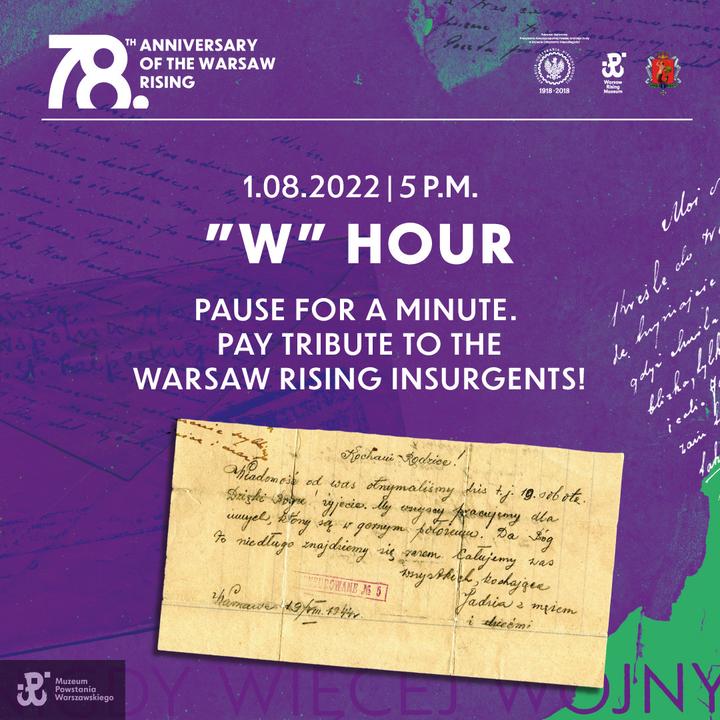
27 / 7 / 2022
Travel and help those in need!
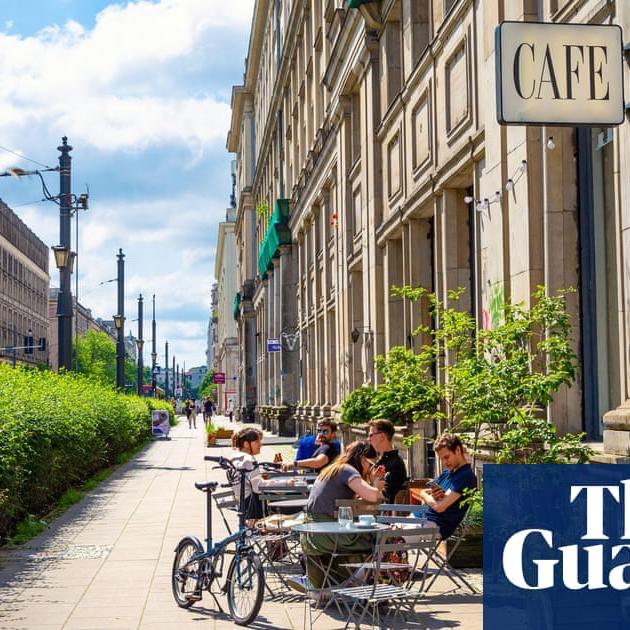
26 / 7 / 2022
⏰ Attention! Deadline is coming! The admissions to Poznan University of Medical Sciences...
Our special offer.
Warsaw Collegium Civitas
Bachelor in Sociology
Bachelor in multimedia communication, bachelor in international business management, bachelor in new media and journalism, top programs, find a course for you.

Your travel step by step
This offer is made for you - wherever you are right now. It is available for you whether you are in your home country, travelling abroad or already in Poland. You can deal with all the formalities online, via mail, by visiting one of our offices or during individual consultations in your city. Please contact us and we will surely find an option for you.
I am in my home country and I want to be finally in Poland! Discover how you can travel to Poland in 9 easy steps.
- Contact 1
- Offer 2
- Quote 3
- Formalities 4
- Flight 6
- Services 7
- Support 8
- Work 9
1 Contact us
Simple and easy contact is basic nowadays. You can contact us in many ways: visit Think Poland at our partner office, call our hotline or on Skype, send us an e-mail. We will answer all your questions. We offer you feedback within 24h. If you prefer one-on-one contact, we can organize free individual consultations. If there is no Think Poland partner office in your city - that's not a problem. We organize regular meetings and individual consultations in many different cities. Just follow our webpage and Facebook profile. Moreover, Think Poland is an exclusive organizer of events dedicated to travels to Poland. This is a great opportunity to learn more about studies, work, migration and travelling to Poland.
2 Choose an offer for yourself
Do you want to study or work? Do you want to travel for short or stay a little longer? In our offer you can find various services and school offers that can be easily combined depending on your preferences, budget and goal of travel. We are the only company in the education market that offers this advanced program and additional service browser.
3 Quote in 1 minute
Log in to our webpage. Start with program browser and find a program for you. Generate one or more quotes. Number of generated initial quotes will be shown in the quote icon in the top right corner as well as in your shopping basket. Remeber that you can calculate costs of one or more programs within one student visa - you can create a package. For example - you can choose two different language courses or a language course and a degree program following it. Finally, you can choose additional services or products: accommodation or insurance. Recalculating and comparig costs on our website is free of charge - it will give you an idea about the travel costs. If you have any questions - call us, send us e-mail or visit our office. We will contact you back as well.
4 Our services are competitive
Thanks to the Internet we can do our shopping on the moblie or tablet. A lot of people planning a trip to Poland know what they expect, compare offers and look for information on social media. We know how to adjust, so we offer a multi-channel contact. You can organize your travel and deal with all the formalities online or in a traditional way. The offer is very rich and transparent - the only one like this in the market. You have a lot to choose from. All our common arrangements will be included in an appropriate document. This will assure you that we will fulfill all our responsibilities. All your payments can be also done online. We will help you to choose the best payment method for you.
5 We assist you in visa application
That's the crucial stage of organizing your travel. Every visa application to Poland requires certain preparations. This is a process that takes some time. With support of our local partner, we will help you in preparation of of all visa supporting documents and in filling a visa application form. We will also prepare you for the visa interview to make sure that everything goes smoothly. We have almost 10 years of experience in visa application assistance and we have the highest rate of positive decisions. Remember that visa application process is included in our service without any extra charge.
6 After I get my visa...
You will be able to download most of the documents needed before travelling from our system. You will receive Pre-departure Information Package via e-mail or at our partner office. We are a team of people who know Poland from their own experience. We'd love to share our knowlegde and answer your questions. Upon your arrival you will receive also a Think Poland Welcome Pack with a Polish mobile number included. And what is the most important - you will also receive all the contact details to be able to keep in touch with us right after arrival and throughout your stay duration, no matter which city you will be staying in.
7 Arrival and accommodation
You already have a plane ticket and let us know about your arrival date, before you have booked accommodation through us. No matter what is the accommodation type you booked, it is part of our service to pick you up and make sure you will reach the right place. Whether you arrive by train or by plane, our representative will be waiting for you at the airport or train station with Think Poland sign to take you to the place of your accommodation.
8 Multilingual Warsaw office
We are the first company that opened its own all-year, multilingual student office in the center of Warsaw. In our office you can use computers, Internet, copymachine or scanner. Our office address can always stay also your correspondence address. But no matter which city in Poland you choose to stay in, a person from our team will take you for Orientation - it will help you to learn to move around the city, how to use public transportation and where to do the shopping. You will learn basic information on a daily life and useful to settle down in Poland. We will answer all your questions
9 Job Assistance
While studying in Poland you can also work legally. It allows not only to earn some money to cover your every day expenses, but you also get a chance to meet new people and get to know Poland better. Usually it is not very hard to find typical student jobs. These kinds of job include: language teacher, waiter/waitress, bar tender, babysitter, salesperson, cleaning person. To do these kinds of job it is usually required to know Polish. If you don't know it, Think Poland will help you to find and subscribe for the course of basic Polish, which will increase significantly your chances for employment. While looking for a job, it is worth to check websites which specialize in job offers for foreigners who don't speak Polish.
I'm in Poland and I want to extend my legal stay. Find 5 steps to apply for the Residence Card in Poland
- Don't hesitate to ask 1
- Quote 2
- Payment in installments 3
- Student visa 4
- Job Alerts 5
1 Are you already in Poland?
So you are already in Poland. You liked it and you would like to stay here for longer? Doesn't matter if you organized your travel on your own, with us or with help of friends or another agency. It is important that you pursue your goals. Doesn't matter what type of visa you have and where in Poland you stay - you can always contact our office in Warsaw and discuss your situation. You can count on our advice, support and best solution. We can always help you to apply for a Residence Card.
2 Log in to check the prices for your country
We perfectly know how it is to be a student abroad. You study, work, make friends, try to see as much as you can. You want to maximize your experience of Poland and you don't have much time left - yet you need time to apply for a Temporary Residence Permit. If you intend to extend your stay in Poland as a student, you can use our program database and browser (there is a lot to find there). Find the most suitable program for you and add it to your quote. You can also combine courses and programs into packages, e.g. language course + university degree program, or add additional services, such as accommodation and insurance. We will check course or program availability for you. In case what you choose turns out to be unavailable, we will offer you similar alternative. In case of any questions, just let us know. We know all the schools and universities very well and from our students recommendations - we'd love to share this knowledge with you.
3 We will take care of all the formalities for you
Until you finally decide what course or program is best for you, our free consultations and generating quotes do not oblige you to make the payment. Depending on the school chosen by you, type of documents required for the application process and payment plan can differ. We will help you to choose the school depending on your preferences and financial capabilities, you will learn from us if the payment is due for semester or for a year and what it depends on. You will be able to make a tuition fee payment directly to a university account.
4 We assist you in visa application
5 What's next?
You became Think Poland student. We are your information point in case you need us. You are also welcome to our regular integration events. The truth is that once you fall in love with Poland, you will want to stay here for longer. The truth is also that not everyone can easily stay in Poland due to the visa type. So if you want to stay in Poland longer, get in touch with us. We can discuss your current situation, find out what your options are and make decision on applying for the Residence Card.
I'm abroad now and I want to travel to Poland without necessity of going back to my country. Contact Think Poland - we will discuss your residential situation and see if this option could be available for you.
- Formalities 4
1 Contact us
Simple and easy contact is basic nowadays. You are in a foreign country. You can contact us in few different ways: write us an e-mail, call our office, call our hotline or contact us via Skype. We will answer all your questions. We will give you feedback within 24h. We can organize the whole travel to Poland online. We will not meet until you arrive to Poland - and this not necessarily at our office, but possibly during one of the integration events we organize.
Do you want to study or work? Do you want to travel for short or stay a little longer? In our offer you can find various services and school offers that can be easily combined depending on your preferences, budget and goal of travel. We are the only company in the education market that offers this advanced program and additional service browser. Search and check
3 Quote in one minute
Log in to our webpage to see the prices valid for your country. Start with program browser and find a program for you. Generate one or more quotes. Number of generated initial quotes will be shown in the quote icon in the top right corner as well as in your shopping basket. Remeber that you can calculate costs of one or more programs within one student visa - you can create a package. For example - you can choose two different language courses or a language course and a degree program following it. Finally, you can choose additional services or products: accommodation or insurance. Recalculating and comparig costs on our website is service free of charge - it will give you an idea about travel costs. If you have any questions - call us or send us an e-mail
4 Formalities
We can organise your whole travel for studies online, you can also count on the assistance of our local partner in your country.
Thanks to the Internet we can do our shopping on the moblie or tablet. A lot of people planning a trip to Poland know what they expect, compare offers and look for information on social media. We know how to adjust, so we offer a multi-channel contact. You can organize your travel and deal with all the formalities online or in a traditional way. The offer is very rich and transparent - the only one like this in the market. You have a lot to choose from. All our common arrangements will be included in an appropriate document. This will assure you that we will fulfill all our responsibilities. All your payments can be also made online. We will help you to choose the best payment method for you.
5 We support your visa application
That's the crucial stage of organizing your travel. Every visa application to Poland requires certain preparations. This is a process that takes some time. With support of our local partner, we will help you prepare all visa supporting documents and fill a visa application form. We will also prepare you for the visa interview to make sure that everything goes smoothly. We have almost 10 years of experience in visa application assistance and we have the highest rate of positive decisions. Remember that visa application process is included in our service without any extra charge.
6 I received my visa
You will be able to download most of the documents needed before travelling from our system. You will receive Pre-departure Information Package via e-mail or at our partner office. We are a team of people who know Poland from their own experience. We'd love to share our knowlegde with you and answer your questions. Upon your arrival you will receive also a Think Poland Welcome Pack with a Polish mobile number included. And most importantly, you will also receive all the contact details to be able to keep in touch with us right after arrival and throughout your stay, no matter which city you will be staying in.
You already have a plane ticket and let us know about your arrival date and you have booked accommodation through us before. No matter what is the accommodation type you booked, it is part of our service to pick you up and make sure you will reach the right place. Whether you arrive by train or by plane, our representative will be waiting for you at the airport or train station with Think Poland sign to take you to the place of your accommodation.
8 Multilingual Warsaw office
We are the first company that opened its own all-year, multilingual student office in the center of Warsaw. In our office you can use computers, Internet, copymachine or scanner. Our office address can always be also your correspondence address. But no matter which city in Poland you choose to stay in, a person from our team will take you for Orientation - it will help you to learn to move around the city, how to use public transportation and where to do the shopping. You will learn basic information on a daily life and useful hints on how to settle down in Poland. Apart from this you can count on our help in opening a bank account, university registration, purchasing the insurance and getting sworn translation of your documents.
+48 (22) 692 49 39
+48 534 900 090
+48 796 466 949 (Student issues) +48 793 900 890 (Corporate issues)
Infolinia 800 880 001
W związku z podróżą do Australii biuro w Mikołowie będzie nieczynne w terminie od 21.12.2017 do 09.02.2018. W tym czasie zapraszamy do kontaktu mailowego lub telefonicznego (darmowa infolinia 800 880 001)
+48 536 900 989 (Africa) +48 731 900 890 (Asia/South America)
- What makes us different
- Education in Poland
- Language courses
- Universities
- Scholarship
Play with us!
You need to create an account to add courses to your estimation. Registration is free and easy so why won't you start today? You can do it via email or social media - Facebook and Google+ available.

Attention! If you currently stay in another country, log in to check prices for your country
Already have an account? Log in
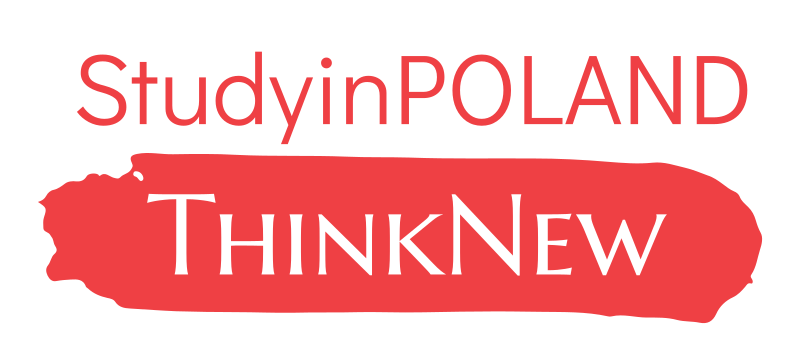
Search Courses
Book Appointment
Upcoming Events

How to Apply for a Poland work permit in 2023?
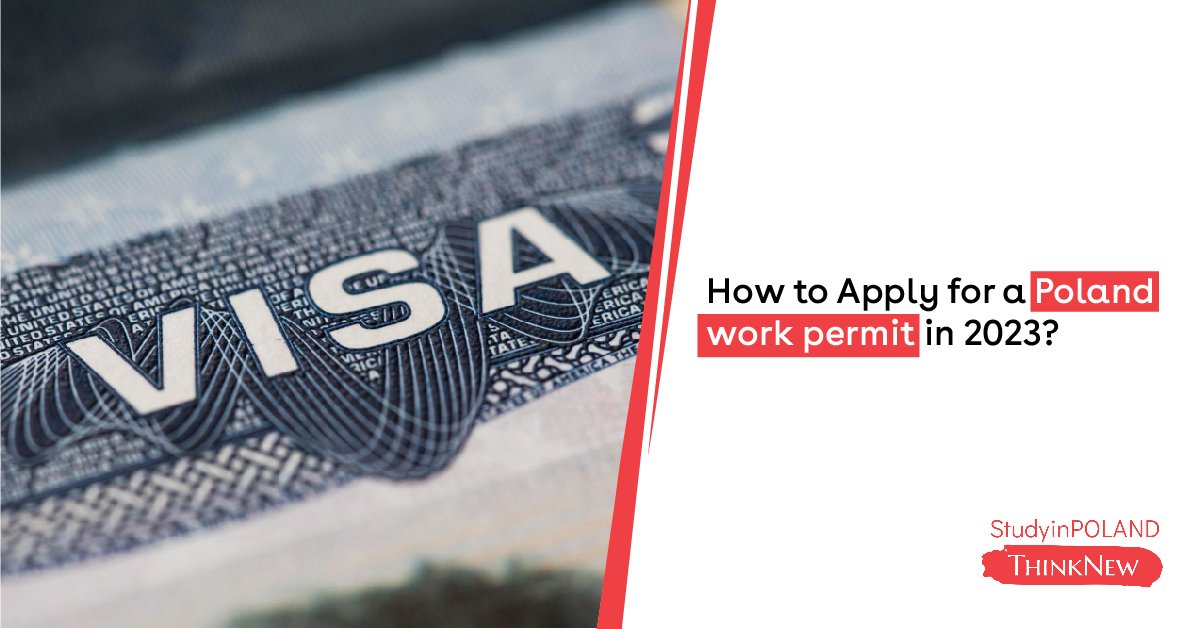
10 Oct 2023
Why should you consider a work visa to Poland? Here are some reasons to consider:
- The average working hours in Poland are 40 hours per week.
- The average annual income in Europe is 20,000 Euros.
- Professionals in Poland are entitled to 26 paid leaves every year.
- International employees can avail themselves of social security benefits.
- There are currently over 94,000 job vacancies in Poland.
A Poland work visa is a document that allows foreign nationals to work and reside in Poland for a specified period legally. There are several reasons why individuals might seek a Poland work visa:
- Employment Opportunities: Poland is part of the European Union (EU) and has a growing economy. It offers various job opportunities across different sectors, including IT, manufacturing, healthcare, and more. Many foreigners seek work in Poland to advance their careers and gain international work experience.
- Schengen Area Access: Poland is a member of the Schengen Area, which allows visa holders to travel freely within most European countries without the need for additional visas or border controls. This can benefit those who wish to explore Europe while working in Poland.
- Higher Earnings: Compared to other countries, Poland offers competitive salaries and a lower cost of living, which can lead to a higher standard of living for expatriates.
- Cultural Experience: Living and working in Poland can be an enriching cultural experience. The country has a rich history, vibrant traditions, and a diverse cultural scene, making it an attractive destination for those seeking a unique cultural experience.
- Education and Research: Poland has several universities and research institutions that attract foreign academics, researchers, and students. Many individuals may apply for work visas to pursue academic or research careers in Poland.
- Family Reunification: Some individuals obtain a Poland work visa to join family members already living and working there. Poland allows for family reunification under certain conditions.
- Entrepreneurship: Poland offers opportunities for entrepreneurs and investors through various business visa programs. Foreign entrepreneurs may start or invest in businesses in Poland, contributing to economic growth.
Job opportunities in Poland and shortage in 2023
Job Opportunities:
Poland offers various job opportunities across multiple industries, like many other European countries. Some of the sectors with significant employment prospects in Poland in 2021 and 2323 included:
- Information Technology (IT): IT professionals, including software developers, programmers, and IT support specialists, were in high demand due to the growing tech industry in Poland.
- Healthcare: Doctors, nurses, and healthcare professionals were sought after, mainly as Poland's healthcare system evolved.
- Engineering: Engineers, particularly those with skills in mechanical, electrical, and civil engineering, were needed for infrastructure and construction projects.
- Finance and Banking: The financial sector, including jobs in banking, finance, and accounting, offered opportunities for skilled professionals.
- Manufacturing: Poland has a significant manufacturing sector, and jobs in production, logistics, and quality control were available.
Labour Shortages:
In 2021 and 2023, Poland experienced labour shortages in several key areas, which prompted efforts to attract foreign workers and address the gaps:
- Construction: A booming construction industry created a high demand for construction workers, including carpenters, masons, and plumbers.
- Healthcare: The healthcare sector faced shortages of medical personnel, including doctors, nurses, and medical specialists.
- Information Technology: Poland's IT industry demands skilled IT professionals, including software developers and project managers.
- Agriculture: Seasonal labour shortages were common, particularly for fruit and vegetable picking during harvest seasons.
- Transportation and Logistics: The transportation and logistics industry experienced a shortage of truck drivers and warehouse workers.
*Want to work in Poland? Studyinpoland.info offers you the required guidance.
There are various advantages to working in Poland.
- Economic Stability : Poland has experienced strong economic growth in recent years and has a relatively stable economy compared to other European countries. This stability can provide job security and opportunities for career advancement.
- Job Opportunities : Poland has a growing job market with opportunities in various sectors, including IT, manufacturing, finance, and healthcare. The country is home to many multinational companies, offering a wide range of employment options.
- Cost of Living : The cost of living in Poland is generally lower than in many Western European countries. This includes affordable housing, transportation, and daily expenses, making it an attractive option for those seeking a good standard of living without high costs.
- Quality of Life : Poland offers a high quality of life with access to modern amenities, healthcare, and education. The country has a rich cultural heritage, beautiful landscapes, and a vibrant cultural scene, providing residents with a high quality of life.
- Education : Poland has a robust education system, including many universities offering English programs. It's an excellent destination for international students, and education is generally more affordable than many Western countries.
- Safety : Poland is considered a safe country with low crime rates. This contributes to residents’ and expatriates’ sense of security and well-being.
- Cultural Diversity : Poland is becoming increasingly diverse, with a growing expatriate community. This cultural diversity can provide opportunities for cross-cultural experiences and networking.
- EU Membership : Poland is a member of the European Union (EU), which can open up additional opportunities for travel, work, and business within the EU.
- Geographic Location : Poland's central European location is a strategic base for travel and business. It's well-connected to other European countries by road, rail, and air.
- Work-Life Balance : Poland generally offers an excellent work-life balance, with reasonable working hours and a strong emphasis on leisure and family time.
- Healthcare : Poland has a modern healthcare system provides quality medical care. Healthcare costs are generally lower than in many Western countries, and health insurance is mandatory for residents.
- Infrastructure : Poland has invested significantly in its infrastructure, including transportation networks, making it easier to travel and commute within the country.
Hours of work and paid vacation
Hours of Work:
- Full-Time Employment: A standard full-time workweek in many countries is 40 hours, typically five 8-hour days. However, some countries or industries may have different norms. For example, in France, the standard workweek is 35 hours.
- Part-Time Employment: Part-time employees work fewer hours than full-time employees, and the number of hours can vary widely. It's often less than 30 hours per week, but this can vary by country and employer.
- Overtime: Employees who work more than the standard hours may be entitled to overtime pay, typically a higher hourly rate.
Paid Vacation:
- Annual Leave: Paid vacation, often called yearly or holiday leave, is time off work for which employees are paid their regular wages. The amount of paid vacation an employee is entitled to can vary considerably by country and employer.
- Accrual: In many countries, employees accrue vacation days over time. For example, in the United States, it's common for employees to accrue vacation days based on years of service with an employer.
- Statutory Minimums: Some countries have laws mandating minimum paid vacation days employers must provide their employees. These minimums can range from a few days to several weeks.
- Company Policies: Employers often have vacation policies that may exceed legal requirements. This means that the amount of paid vacation can vary from one employer to another.
Minimum income in 2023
3,490 zloty gross from January and 3,600 zloty gross from July. This is the minimum wage in 2023.
What does it mean for enterprises? Check how the minimum wage increase has affected contributions and employer cost calculation.
Minimum wage in 2023
The minimum wage is the lowest amount the employer must pay the employee for their work – notably, under an employment contract.
The 2023 minimum wage was set in a regulation of the Council of Ministers [1], which became law on 1 January 2023.
The minimum wage in 2023 – how much is it?
Until the end of 2022, the minimum wage was 3,010 zloty gross. It will increase twice in 2023 – the first time by 480 zloty and then by 110 zloty.
Minimum wage 2023
- 3,490 zloty gross – from 1 January 2023
- 3600 zloty gross – from 1 July 2023
This is an increase of 16-20% compared to 2022.
How much is the minimum hourly rate in 2023?
The minimum monthly wage and the minimum hourly rate will increase in 2023. It was 19.70 zloty gross in 2022. How much will it be now?
Minimum hourly rate 2023
- 22.80 zloty gross – from 1 January 2023
- 23.50 zloty gross – from 1 July 2023
The minimum wage in 2023 – how much are social insurance contributions?
A higher minimum wage means higher costs for the employer. In 2023, the total cost of an employee who earns the minimum wage will increase by more than 700 zloty compared to 2022.
MINIMUM WAGE 2023 VS HEALTH INSURANCE CONTRIBUTION
The increased minimum wage in 2023 has also led to a significant increase in the health insurance contribution.
For sole proprietors – except those who pay a flat tax on gross income – the health insurance contribution in 2023 will be:
- 314.10 zloty – from 1 January,
- 324 zloty – from 1 July.
The health insurance contribution for sole proprietors who pay flat tax on gross income is calculated based on the average salary in the previous year's fourth quarter. This means that the contribution will be calculated during 2023.
MINIMUM WAGE 2023 VS PREFERENTIAL SOCIAL INSURANCE CONTRIBUTION (ABBREVIATED IN POLISH AS ZUS)
Sole proprietors who enjoy a preferential social insurance regime will also pay more for social insurance. Those starting a sole proprietorship are eligible for a preferential social insurance regime for the first 24 months.
The preferential social insurance contribution is 30% of the minimum wage. Therefore, it will be 1,047 zloty from 1 January 2023 and 1,080 zloty from 1 July. This is an increase of almost 20% compared to 2022.
Why has the minimum wage increased in 2023?
The minimum wage will increase twice in 2023 – in January and in July. Why?
The Minimum Wage Act [2] says that if the consumer price index forecast for the next year is 105% or more, the minimum wage changes twice – from 1 January to 1 July.
This is why the minimum wage will increase twice in 2023 – as the consumer price index will reach almost 110%.
Types of work visas in Poland
There are several types of work permits and work visas in Poland. These vary by the employee’s nationality, length of employment, and kind of employment. The most critical tickets for hiring foreign (non-EU) workers in Poland are a Type A work permit or a Schengen Type C or D visa.
Work Permits :
- Type A : Foreign individuals offered employment by a Polish employer. A valid residence permit is required.
- Type B : For foreign individuals employed as board members.
- Type C : Foreign individuals sent to work in Poland through an intra-company transfer.
- Type D : For foreign individuals sent to work in Poland in export services by a foreign employer that does not have a Polish branch.
- Type E : Foreign individuals sent to work in Poland for other reasons.
- Type S : For foreign individuals working in agriculture or accommodation for a foreign employer.
Work Visas:
- Type C : This visa is valid in the Schengen Area and permits the holder to stay in the territory of all Schengen countries (including Poland) for a maximum of 90 days during 180 days.
- Type D : A Type D national visa allows entry and stays in Poland for over 90 days (up to one year). It also permits travel within other Schengen Area Member States for up to 90 days during 180 days while the visa is valid.
- Freelance/Entrepreneur Visa : The Freelance Visa in Poland is valid for two years and can be renewed before expiry. This visa requires the applicant to have Polish and foreign clients.
- The EU Blue Card : The EU Blue Card is granted to highly qualified non-EU workers, allowing them to live and work in an EU country. Eligibility requires higher professional qualifications as well as an employment contract or firm job offer with a duration of at least one year.
Remember, these permits do not cover residents of the European Union as they automatically have authorisation to work in Poland and other EU states.
What are the eligibility criteria for obtaining a Work Visa in Poland?
- Job Offer: You must have a valid job offer from a Polish employer. Your employer must often demonstrate that they needed help finding a suitable candidate within the EU or EEA before hiring you. They might need to obtain a work permit for you.
- Work Permit: Your employer in Poland should apply for a work permit on your behalf. A work permit is usually issued for a specific job and employer. It would be best to work in Poland with a valid work permit.
- Health Insurance: You should have health insurance that covers your medical expenses in Poland. In some cases, your employer may provide this insurance.
- Financial Means: You might be required to prove that you have sufficient financial means to support yourself in Poland. This requirement can vary depending on the specific circumstances and type of visa.
- Clean Criminal Record: You may need to provide a certificate or declaration stating that you don't have a criminal record in your home country or any previous country of residence.
- Travel Document: You will need a valid passport with a minimum of six months' validity from the date of your visa application.
- Application Form: You must complete a visa application form, which can be obtained from the Polish consulate or embassy in your home country.
- Biometric Data: Depending on your nationality, you may need to provide biometric data (fingerprints and a photo) for the visa application process.
- Visa Fees: You'll need to pay the required visa application fee, which can vary depending on your nationality and type of visa.
- Other Documentation: Additional documents may be required depending on your specific circumstances and the type of work you’ll be doing in Poland. This could include educational certificates, a copy of your employment contract, or proof of accommodation.
To obtain a work visa for Poland, specific requirements must be met.
- Job Offer: You must have a job offer from a Polish employer before applying for a work visa. The employer should provide you with a formal job offer letter detailing the terms of employment, including salary and job responsibilities.
- Work Permit: Your Polish employer must obtain a work permit on your behalf. This usually involves demonstrating that a Polish or EU citizen cannot fill the position and that you have the qualifications and experience for the job.
- Visa Application: Once the work permit is approved, you can apply for a work visa at the Polish consulate or embassy in your home country. You must complete the visa application form and pay the required visa fee.
- Passport: You must have valid access with at least two blank pages and a validity period extending beyond your intended stay in Poland.
- Biometric Photo: You will need to provide recent biometric passport-sized photos that meet the specifications outlined by the consulate.
- Travel Medical Insurance: You may be required to provide proof of travel medical insurance covering your healthcare needs in Poland.
- Criminal Record Check: Some visa applicants may be required to submit a criminal record check or a certificate of good conduct from their home country.
- Proof of Accommodation: You may need proof of accommodation in Poland, such as a rental agreement or a letter of invitation from your employer if they provide housing.
- Financial Means: You may need to prove that you have sufficient funds to support yourself during your stay in Poland, especially if your employment doesn't cover all your expenses.
- Health Certificate: Depending on your nationality and the length of your stay, you may need to undergo a medical examination and provide a health certificate.
- Consular Interview: You may be required to attend a consular interview as part of the visa application process.
- Biometric Data: You may need to provide biometric data (fingerprint scans) at the consulate as part of the visa application process.
Steps to Apply for a Poland Work Visa
The step-by-step procedure to apply for a work visa in Poland is given below:
Step 1: Labor Market Test
- Poland-based employer conducts a labour market test to ensure that no eligible candidates from Poland or the European Union are overlooked.
- Register a notification of vacancy with the County Labor Office.
- The Labor Office assesses the availability of qualified candidates.
- If eligible candidates are not found, the employer can apply for a work permit for an international employee.
- A comparative analysis is conducted on the offered remuneration.
Step 2: The Application Process
- Employers initiate the application process by submitting the required documents, including appropriate employment conditions.
- The salary should be at least the average monthly income by more than 30 per cent.
Step 3: Issuing Work Permit
- The Voivode (Local Government Head) issues the work permit.
- Three photocopies of the work permit are generated for the employee, employer, and the Voivodeship Office.
- The employee can start working in Poland with the issued work permit.
- Employers must fulfil additional obligations, including notifying authorities and providing written and translated contracts.
Again, please verify these steps with the most current information from the Polish government or the nearest Polish embassy or consulate to ensure you have the latest and most accurate guidance for applying for a work visa in Poland. Additionally, immigration requirements and procedures may vary depending on your nationality and specific circumstances, so it's advisable to consult with an immigration attorney or expert for personalised guidance.
Are you looking to work or study in Poland? Contact StudyinPland.info , the best education and work overseas consultant in the country.
Disclaimer: StudyinPoland.info is a marketplace connecting experts on Poland immigration and education with those seeking information. The information displayed on this page is for informational purposes only and is not intended to be legal advice. Please speak to an expert before applying for a visa.
Leave a Reply
Your email address will not be published. All comments go through moderation, so your comment won't display immediately.
Related Blog
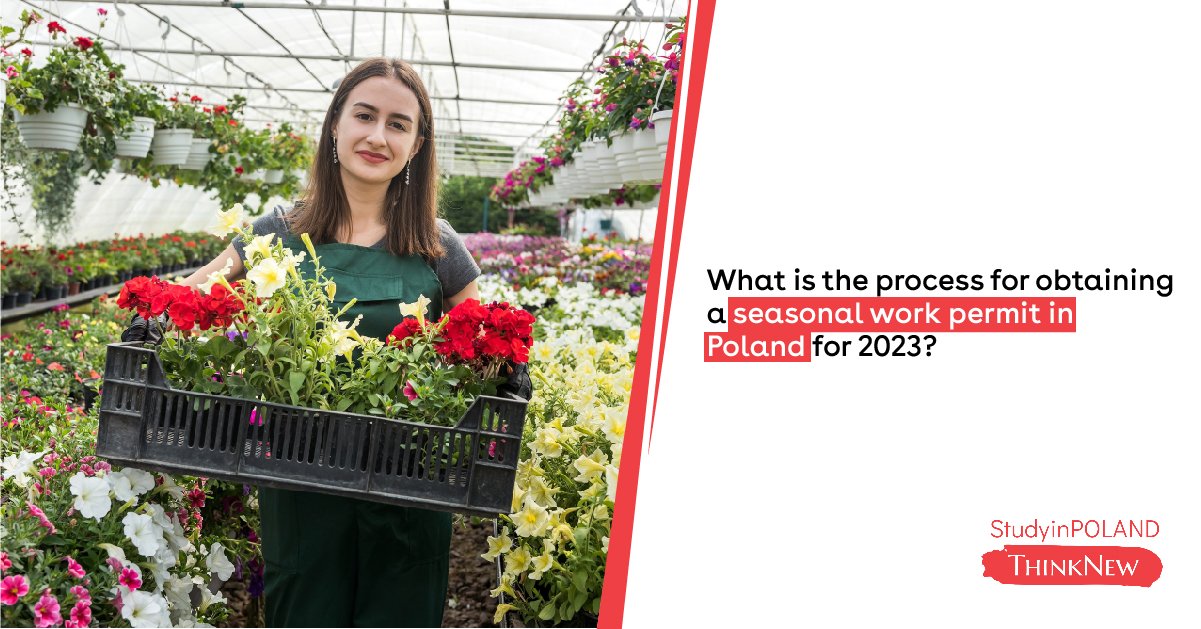
What is the process for obtaining a seasonal work permit in Poland for 2023?

Jobs for Students in Poland

What jobs will be in demand in the next 10 years?

Jobs for International Students in Poland in 2022

The most profitable side hustle ideas for students

Poland has the second lowest unemployment rate in the EU
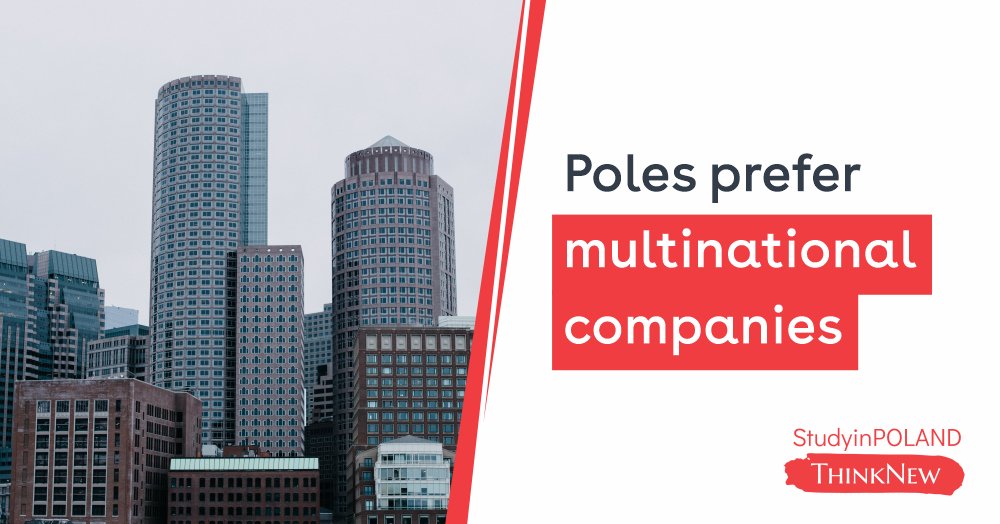
Poles prefer multinational companies
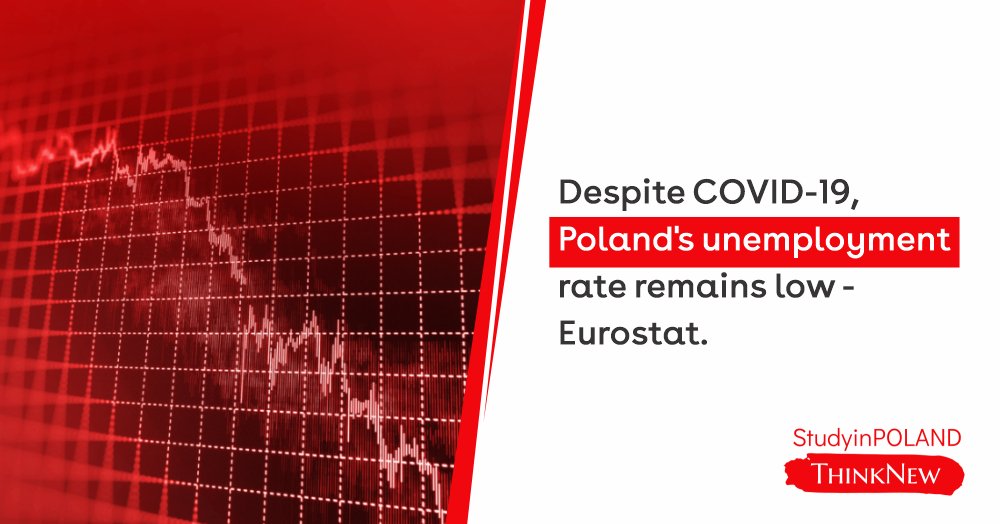
Despite COVID-19, Poland's unemployment rate remains low - Eurostat.
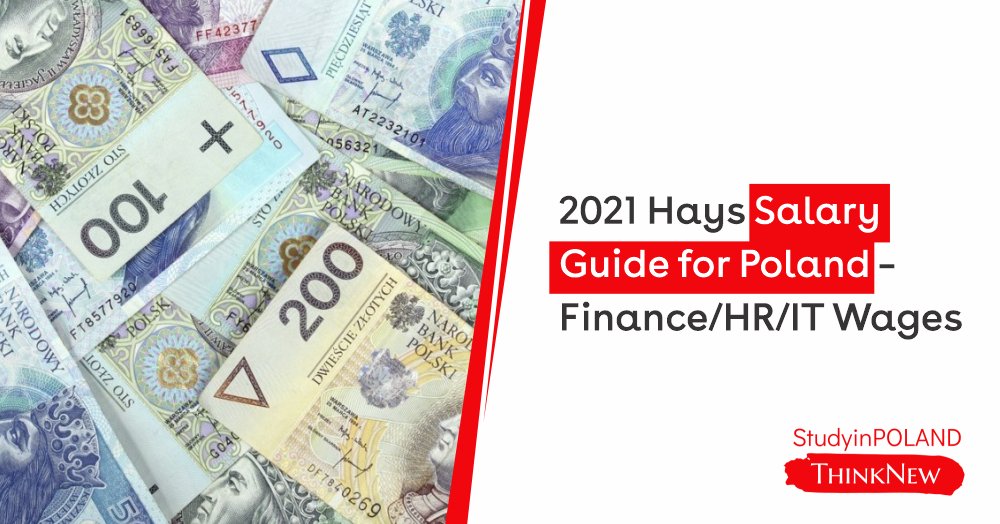
Salary Guide for Poland in 2021 by Hays - Finance-IT-HR
Search for courses, popular searches.
We’re sorry, this site is currently experiencing technical difficulties. Please try again in a few moments. Exception: request blocked
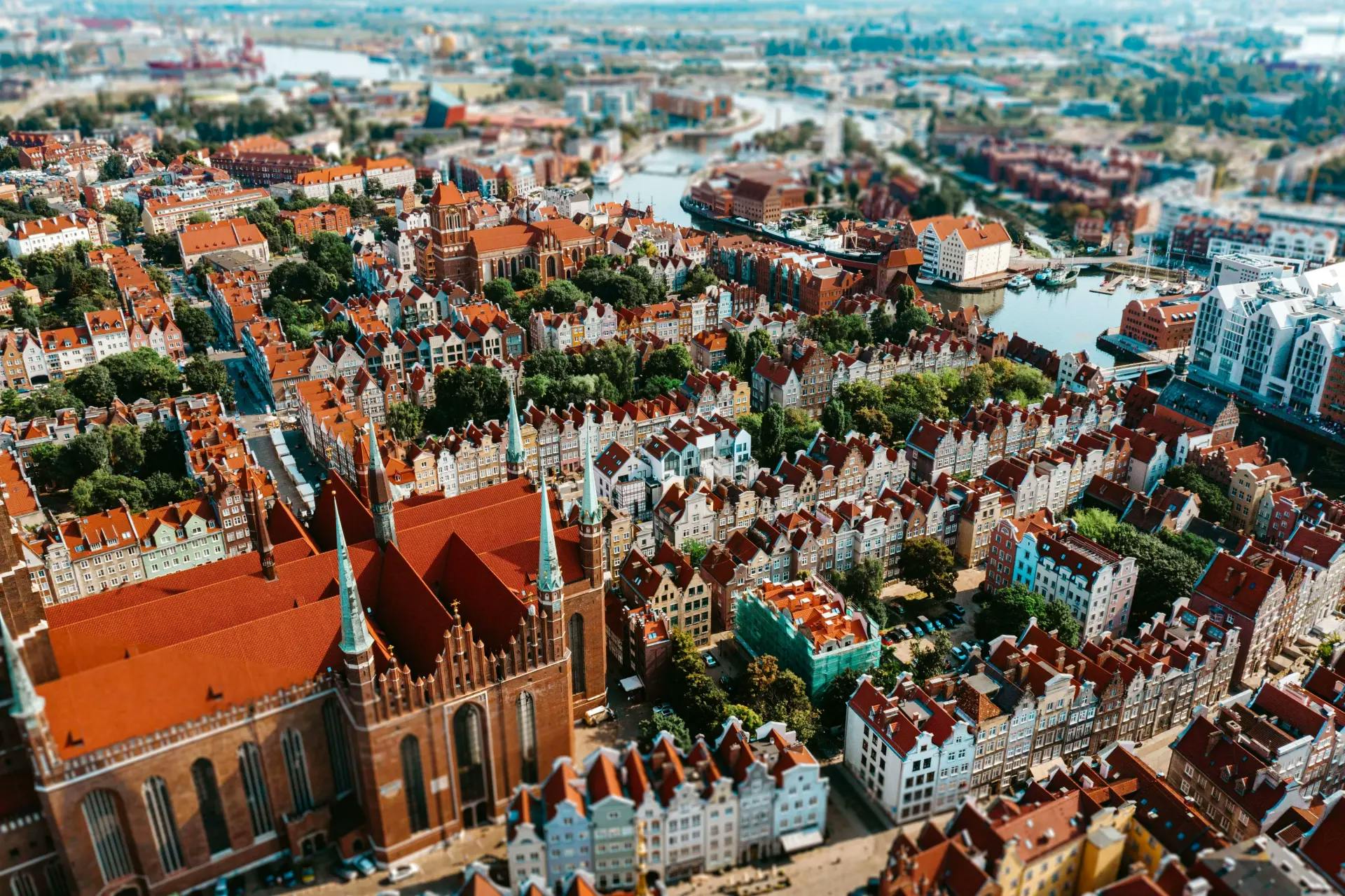
Poland — 14 min
Work permits and visas in Poland: an employer’s guide
If you want to hire an employee in Poland or relocate a team member to the country, you’ll have to make sure they have the right legal status.
Polish immigration laws can be complex, especially if you have limited knowledge about international hiring. While hiring abroad, you'll have to follow local labor and tax laws and ensure legal compliance while you pay and manage employees.
In this article, we’ll take you through the work permits and work visa process in Poland, eligibility criteria, and processes for employee work visa sponsorship. We’ll also briefly look at how an employer of record like Remote can make it easy for you to hire in Poland.
The importance of immigration compliance in Poland
Who is eligible to work in poland, do non-citizens need a work visa or work permit in poland, what are the eligibility requirements for a work visa in poland, what are the long-stay visa types in poland, how to apply for a work permit in poland, how do you get a work visa for poland, what is the process for employee work visa sponsorship in poland, what are the visa requirements for digital nomads in poland, navigating visas and work permits in poland with remote.
The rise of remote working means that workers can now work across the globe while they travel. In response, many countries have introduced laws that restrict individuals from working on a tourist visa.
New regulations on remote work came into force in Poland in 2023 which places new obligations on employers to make sure that provisions are in place to support remote workers.
If individuals are found to be working illegally, they may be subjects to fines and deportation. If employers hire individuals without the correct work permit, they may also receive hefty penalties and/or be banned from working in the country.
Given these stringent rules, companies need to make sure that their team members are working legally and are always compliant with local laws.
Get your Remote Relocation Guide
Learn how to simplify your planned relocation with this walkthrough guide. We outline the key steps for you and your employer to enable a compliant, efficient, and hassle-free move.
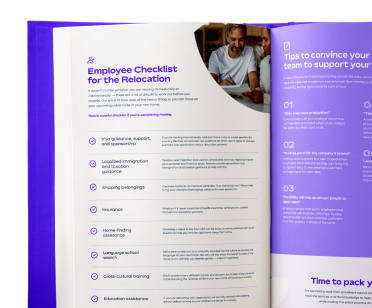
Foreigners who can legally stay in Poland and have a work permit can lawfully work in the country. Those who hold a residence card with an “access to the labor market” note can also work without applying for a visa.
However, those who solely possess a tourist visa or visa to visit friends or family cannot perform any paid work. European Union citizens, as well as citizens of Norway, Iceland, Liechtenstein, and Switzerland, and their family members can legally work in Poland without a work permit. There are also a few countries from outside the EU/Western Europe region that are granted access to the Polish job market. These include nationals of Moldova, Ukraine, Armenia, Georgia, Russia, and Belarus.
However, citizens of these countries can only work without a visa for no longer than six months within each subsequent period of 12 months. If they exceed this limit, then their Polish employer needs to submit a special declaration to the labor office, stating that they wish to hire them on a long-term employment contract.
There’s also a possibility of applying for a seasonal worker permit , which lets the foreigner work in Poland for nine out of 12 consecutive months.
Yes, a legal work permit status is generally necessary for non-citizens to work in Poland.
As explained before, there are several countries whose citizens don’t have to apply for a work visa or work permit if they decide on a short-term stay.
Those who are eligible for visa-free entrance can cross the border into Poland solely based on a passport or (for EU citizens, a national ID card). However, they must remember that they can only conduct work under the visa-free regime for no longer than 90 days during a 180-day period. If they wish to work in the country for a longer period, then they need to apply for a residence permit (which EU citizens are entitled to upon request).
How is the Schengen visa applicable?
A Schengen visa is required for some nationals to enter any country within the Schengen area (Poland falls within the Schengen area).
The good news for businesses is that an individual can also apply for a Business Schengen visa, which allows them solely to execute their current business agenda while on Schengen territory. So, if the employee were to spend a few weeks on Polish territory to represent your interests, then they would safely be able to do so with this document.
However, it’s critical to understand that a Business Schengen visa does not function as a work permit, i.e., it does not grant the holder access to the local labor market.
That being said, if a worker has a Polish national employment (Type D) visa, which we discuss later in this article, they would be automatically permitted to seek employment not only in Poland but also in other Schengen Area states.
How is the European Union Blue Card applicable?
A European Union Blue Card is a special, temporary residence permit, which is granted to those who wish to enter the EU for “highly-qualified employment”. It’s given to foreigners whose skills are highly in demand in the country they want to move to.
The card gives the individual the right to perform the type of work they’ve declared on their application. It’s valid for anywhere between three months to three years.
To apply for a Blue Card, an applicant needs to meet at least one of the following criteria:
Have a higher education diploma relevant to the type of work they want to perform, or
Prove that they have at least five years of work experience in the field (which can be treated as an equivalent of the years spent on formal education).
The eligibility requirements depend on the type of Poland work visa or work permit the foreigner is applying for. They also vary depending on whether they’re entering the country to work for a specific employer or want to set out on a job hunt.
If a foreigner wants to perform commercial work for their own business but isn’t seeking employment, then a Business Schengen visa might be the right choice. Meanwhile, others might be invited into the country by an employer, who would like to hire them for their high-level or unique skills, as is the case of the Blue Card.
As mentioned, some nationals (mainly those from EU member states) can be hired on the same terms as your Polish full-time employees, provided that they register themselves as residents.
Before you apply for a visa in Poland, you have to consider the nationality of the employee, their contract duration, and the circumstances of their work.
In Poland, long-stay visas are known as Poland Type D visa, or National visa. Foreigners from non-EU/EEA countries who wish to reside in the country for anywhere between 91 and 365 days a year must apply for this document.
Type D visas are most commonly granted for family reunions, work, and gaining higher education. It’s also given to anyone with Polish roots, who can present a Card of Pole ID.
Some Type D visas are granted for multiple entries to the country, while others let them enter Poland just once or twice. Let’s look at the main national visa types that allow for work. For a full list of Type D visas, including those that don’t require a work permit, visit the Migrant service.
If you want to employ a foreigner, you’ll have to apply for a work permit on their behalf at the local Voivodeship office. For this purpose, you’ll need to submit the following documents:
The application form
Proof of paying the application fees
Proof of the employer’s legal status, issued by the National Court Register
Records of the employer’s economic activity
Scans of the employee’s passport
A confirmation of the health insurance
A company deed
Employer’s profit/loss statements
A copy of the employment contract.
Bear in mind that employers who hire foreigners based on a work permit have the same duties towards them as towards Polish citizens. Therefore, before you bring a non-European citizen on board, you should:
Verify if they have a valid residence permit
Copy the residence permit, and keep it on file until the employment comes to an end
Prepare and sign a written contract, in line with the terms of the work permit
Share a copy of the work permit with your international employee
Inform the foreigner what they’ll have to do to get the work permit or extend it.
Inform the voivode within seven days if the foreigner:
doesn’t start working within three months of issuing the work permit
stops working for more than three months
ends the employment three months before the expiration of the permit.
Luckily, if you work with a partner like Remote, you can significantly accelerate this process. We will handle legal eligibility checks on your behalf. All you have to do is ask your employee to submit the right documentation to our platform. Our expert Mobility team will perform a work eligibility check to make sure the provided work permit is valid. If it turns out that it’s invalid or hasn’t been submitted, we will help you get one as soon as possible.
To get a Poland work visa, an employee has to submit the following documentation:
A valid passport — it shouldn’t expire within the next six months.
A visa application form, must be completed via the e-Konsulat system. It must be printed and signed.
Portrait photos in color. The dimensions are the same as in the Schengen visa.
Flight itinerary
Travel health insurance covers at least €30,000. After arriving in Poland, the employee will have to apply for long-term health insurance either through the Polish National Health Fund or via a private insurer.
Proof of accommodation
Original version and a copy of the work permit, which must be provided by the employer
Letter of employment, signed by the employer. It has to include the job position, salary, and other employment details.
Work employment certificate or a CV. Any documents, which boost employee credibility and show they’re fit for the job, should be attached to the application.
Police clearance certificate, to show lack of criminal background.
After receiving the work permit, or a declaration, the employee should apply to the Polish consulate in the country where they reside to get their work visa.
On average, it takes up to 12 days to process the application for a Poland work visa. However, sometimes it might take as long as six weeks. That’s why it’s highly recommended to apply for a work visa at least 2 months before arriving.
An employer can sponsor a visa not only for those looking to enter Poland based on a Poland work visa, but also for those who are currently legally based in the country.
In the case of the former, the hiring party should provide a letter or other type of formal declaration, that states their readiness to employ the foreigner. These statements are then submitted to and filed by the regional labor office. Upon such a document, the person should then schedule a meeting at their nearest Polish consulate and apply for the visa. Upon the employee's arrival in the country, the employer is required by law to keep copies of documents that certify the legality of the foreigner’s employment. These should be presented to relevant authorities, should these visit the employer’s headquarters.
Meanwhile, if you wish to employ a foreigner who currently resides in Poland based on a national visa, then you must check if their residence permit grants them access to the labor market. If it doesn’t, you’ll have to apply for a relevant Poland work visa type or work permit.
While this is a complex and time-consuming process, the good news is you can partner up with an expert like Remote, who will handle the paperwork for you as part of our Relocation service . Our Mobility team will help ensure that you’re compliant while recruiting, hiring, and moving employees to Poland.
Currently, Poland doesn’t offer a special visa for digital nomads. Those who aren’t EU citizens must be employed by a Polish company to be able to settle in the country.
Digital nomads can apply for the following visas as an alternative to a digital nomad visa offered by other countries:
What is Poland’s Freelance visa?
This type of visa is valid for up to two years, and it can be renewed if necessary. To qualify, digital nomads must have Polish brands as customers. Having international ones only will not suffice. There are three types of freelance contracts, which can be used while working remotely in Poland.
Umowa zlecenie — it’s the most popular employment contract, which governs the relationship between the employer and the contractor/employee. It offers more favorable taxation, and it’s easier to terminate if needed.
B2B contract — this type of arrangement requires the contractor to set up a company and issue invoices to the contracting party. They’re responsible for paying their own taxes and aren’t subject to any benefits.
Umowa o dzieło — freelancers get paid for a specific task instead of the hours they’ve put in to complete it.
What is Poland’s Type C Visa
Also called a Schengen visa. It allows foreigners to live in Poland or any other country, that is part of the Schengen area for up to three months within 180 days. It’s a short-stay visa, and digital nomads aren’t required to pay any taxes to the Polish government.
What is Poland’s Type D Visa
It’s a long-term residence permit. Foreigners have the right to stay in Poland for over three months, either continuously or for several successive times. However, their total stay on the same visa can’t exceed one year. After this time, they need to have it renewed.
We know that relocation can be stressful for employees and employers alike. Apart from understanding visa requirements and handling paperwork, you'll also have to make sure you stay compliant with local labor rules while you hire and pay employees abroad.
Working with Remote can make global hiring a simple and stress-free process. Remote can help you minimize legal risks while handling HR processes such as onboard, payroll , and benefits . Remote can also help you:
Manage the visas and immigration process
Avoid permanent establishment risk
Understand international taxation
Stay compliant with local labor laws.
To make sure your relocation goes as smoothly as possible, take a look at our relocation guide. You can also contact our Mobility gurus for guidance on how to relocate employees to Poland right away!
Hire, pay, and manage relocation for your global team
Create an account with G2’s top-ranked multi-country payroll software and start onboarding your first employees in minutes.
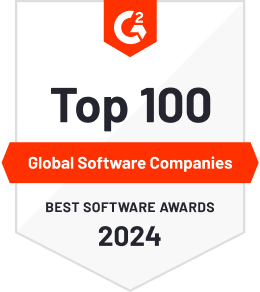
Subscribe to receive the latest Remote blog posts and updates in your inbox.
You may also like

Tax and Compliance — 8 min
Employee gifts vs bonuses: definitions, tax consequences, and more

Remote & Async Work — 5 min
Tips to retain remote employees and slash turnover

Newsroom — 3 min
Remote welcomes Easop to demystify global equity management

Global Payroll — 8 min
The top 8 benefits of using cloud-based payroll software
Ukraine war latest: Russia now in 'direct confrontation' with NATO, Kremlin says; rescuers killed in 'double tap' strike
In Brussels, members of NATO are marking 75 years of the alliance and discussing how to support Ukraine. Elsewhere, four people have been killed in a drone strike overnight in Kharkiv. Listen to a podcast on how Russia is avoiding the effects of Western sanctions while you scroll.
Thursday 4 April 2024 12:20, UK
- Russia says it's now in 'direct confrontation' with NATO
- What we know about drone strikes overnight
- 'Nothing left' as rescuers killed in second wave attack
- Explained: What is a double tap strike?
- Power line to nuclear plant down - Russian authorities
- 'Great risk' of frontlines collapsing as Russia prepares 'big attack'
- NATO explained: How the alliance was formed and who joined first
- Explained: How the war has strayed outside Ukraine's borders
- Big picture : What's happening with war?
One of the emergency responders killed in a Russian "double tap" strike earlier was a 52-year-old firefighter whose son, also a firefighter, was putting out a blaze several buildings away.
Ukraine's interior ministry shared footage of the younger man, Volodymyr, kneeling on the ground and sobbing after learning his father had been killed.
Two emergency workers consoled him as he wept.
Vladyslav Loginov, 52, had "devoted his life to work in the fire service" before his death overnight, interior minister Ihor Klymenko said.
His son Volodymyr had followed in his footsteps to become a guard chief at a nearby fire station.
The father and son were deployed to the scene in Kharkiv, northeastern Ukraine, after an initial drone attack.
They had been working a few houses away from each other when the secondary attack hit.
The Finnish government has said it will extend the closure of its border with Russia until further notice.
It also added several ports to its list where travel would be prohibited.
Finland, which recently joined NATO, closed its land borders with Russia late last year after a surge in migrant crossings from its neighbour.
It accused Moscow of weaponising migration in response to its NATO accession.
Russia has denied this.
Finland's interior minister Mari Rantanen said: "Finnish authorities see this as a long-term situation. We have not seen anything this spring that would lead us to conclude that the situation has changed meaningfully."
French President Emmanuel Macron has said he has no doubt Russia will try to target the Paris Olympics this summer.
"I have no doubt whatsoever, including in terms of information," Mr Macron said.
France has already increased its security alert to the highest level in the wake of the deadly terror attack near Moscow last month.
The attack on the Crocus Concert Hall, which killed at least 144 people, was claimed by Islamic State.
Tens of thousands of police officers, soldiers and security agents will be deployed to protect the Games this summer.
One of the main aims of the NATO alliance is to create a pact of mutual assistance if a member is attacked.
Article 5 of the treaty stipulates that an attack on any of NATO's members must be met with a united response from the rest.
Here's exactly what Article 5 says...
"The parties agree that an armed attack against one or more of them in Europe or North America shall be considered an attack against them all and consequently they agree that, if such an armed attack occurs, each of them, in exercise of the right of individual or collective self-defence recognized by Article 51 of the Charter of the United Nations, will assist the party or parties so attacked by taking forthwith, individually and in concert with the other Parties, such action as it deems necessary, including the use of armed force, to restore and maintain the security of the North Atlantic area. "Any such armed attack and all measures taken as a result thereof shall immediately be reported to the Security Council. Such measures shall be terminated when the Security Council has taken the measures necessary to restore and maintain international peace and security."
So far, Article 5 has only been invoked once.
This was in response to the 9/11 attacks on the United States.
The alliance had already identified terrorism as one of the risks affecting NATO's security, so less than 24 hours after the attacks the decision was made to invoke Article 5.
NATO members responded with direct military action in Afghanistan, as well as intelligence sharing and diplomatic actions.
A recent close call was when two missiles struck Poland in November 2022, killing two men.
The missiles appeared to have come from the direction of Ukraine but it was initially not clear which side had fired them or whether it was intentional.
This started a frenzy over whether Article 5 may need to be triggered as Poland is a NATO country.
However, it was later determined the projectiles were errant air defence missiles fired by Ukraine in response to a Russian attack.
Top Republican officials have dashed hopes aid to Ukraine could be passed soon, telling Bloomberg a vote is still "weeks away".
House Speaker Mike Johnson had earlier said the vote would be held "right after Easter", but this has not materialised.
American aid to Ukraine has been delayed since autumn last year due to contradicting opinions in Congress - with Republican supporters of Donald Trump largely trying to block the bill.
The $95bn aid package to Ukraine, Israel and Taiwan passed in the Senate with bipartisan support in February, but Mr Johnson has so far stalled on bringing it to a vote in the Republican-led House.
Ukraine has warned its army could be forced to retreat further if US military aid continues to be delayed.
Here's the latest pictures from the NATO headquarters in Brussels, where foreign ministers took part in a ceremony marking the alliance's 75th anniversary.
Relations between Russia and NATO have slid to the level of direct confrontation, Kremlin spokesperson Dmitry Peskov has claimed.
He alleged some NATO countries are involved in the war in Ukraine, and that the military alliance is expanding its military infrastructure towards Russia's borders.
"In fact, NATO continues to demonstrate its essence, because NATO was envisioned as an alliance, configured, created and managed by the United States as an instrument of confrontation, primarily on the European continent," Mr Peskov said.
"NATO continues to fulfil its functions in this regard, which, however, in no way contributes to security, predictability and stability on the continent, but on the contrary - represents a destabilising factor."
NATO is marking its 75th anniversary today, with foreign ministers meeting to discuss long-term support for Ukraine.
The alliance says it has tried to avoid direct confrontation with Russia, and this morning British Foreign Secretary Lord Cameron ruled out putting boots on the ground in Ukraine.
We're getting more details now on an overnight Russian "double tap" strike that left three emergency responders dead.
Emergency services had raced to rescue a resident trapped under rubble, while ladders reached up from fire engines to heavily damaged flats at the top of high-rise buildings.
One of the buildings was then hit by a secondary drone strike, killing the emergency workers.
"Windows, all of the glass, everything was knocked out. There's nothing left," Zhanetta Kravchenko, a 77-year-old resident, told Reuters.
"We are alive, at least, and I'm grateful for that."
Ukrainian broadcaster Suspilne said emergency crews had been unable to work for at least an hour for fear of further strikes.
The Ukrainian foreign minister has expressed his increasing frustration at allies refusing to provide more Patriot missile defence batteries.
"It is impossible to comprehend why allies cannot find additional batteries to deliver them to the place where ballistic missiles are being fired everyday," Dmytro Kuleba said, as he attended a meeting of NATO foreign ministers in Brussels.
The Patriot missile systems would be used by Ukraine to counter Russian missile and drone strikes.
Just this morning, four people were killed in the northeastern Ukrainian city of Kharkiv by a Russian drone strike.
NATO allies have been debating a plan to provide more predictable military support to Ukraie in the coming years.
"We strongly believe that support to Ukraine should be less dependent on short-term, voluntary offers and more dependent on long-term NATO commitments," secretary-general Jens Stoltenberg said.
As we've been reporting, NATO foreign ministers are in Brussels for talks about the long-term support of Ukraine.
Today's meeting is important for another reason - it also marks 75 years since the alliance was formed.
What started as a 12-country alliance has now expanded to 32 members, with Sweden the latest addition.
NATO ministers held a ceremony today to mark the day the alliance's founding treaty was signed, although a bigger commemoration is planned when leaders meet in Washington in July.
Hundreds of staff filled the vast air terminal-like space at the centre of NATO's sprawling Brussels headquarters, while scores of others looked down from glassed walkways and stairways as Belgian and Dutch military bands played the NATO Hymn, the original Washington Treaty laid before them.
"I like the Washington Treaty. Not least because it is very short," NATO secretary-general Jens Stoltenberg said with a smile.
"Just 14 paragraphs over a few pages. Never has a single document with so few words meant so much to so many people. So much security. So much prosperity, and so much peace."
Be the first to get Breaking News
Install the Sky News app for free


IMAGES
VIDEO
COMMENTS
Poland is part of the Schengen area, which gives all EU citizens the right to work and travel in Poland for as long as they like. You don't need to fill in any paperwork and there won't even be a border check as you cross into the country. Prior to Brexit occurring in 2019, this also applies to UK citizens.
The Work and Travel USA program: allows eligible students to work in the USA for a maximum of 4 months (between May 25 and September 30) obliges eligible students to register in SEVIS (Department of State system) allows eligible students to undertake additional work, but must get sponsor approval. allows eligible students to travel during days ...
Laura Kucal, Poland. Work and travel program was the biggest adventure in my life. (So I decided to do it twice;)) I met people who will be my friends till the end of my days. I had chance to learn about American culture and people who are living there. Maria Kulak, Poland.
Work and Travel is an edcultural exchane program addressed to students from all over the world.The main goal of it is to learn about American culture and traditions, as well as improve language skills. ... for foreigners studying in Poland: additionally, we need a copy of your visa or residence card (the document should be valid at least until ...
About the program. Work & Travel USA is an official cultural exchange program created and supervised by the U.S. Department of State. The program enables the students to learn the American culture, gain experience, develop language skills, make new friends and international contacts. Work & Travel USA program is organized by selected J-1 ...
The foreigner may enter Poland on the basis of the permit for a seasonal work or in case of the first entry, on the basis of the certificate of entry into the register of applications for a seasonal work. One of the consequences of use of the counterfeit certificate or permit for seasonal work is refusal of entry on the territory of Poland.
With positive reviews, you'll stand out to hosts and get even more benefits. Work and travel in Poland with one of Worldpackers exchange programs! Help our hosts in exchange for free stay and save money while exploring this beautiful destination. Discover the local culture and make your gap year unforgettable by travelling with Worldpackers!
Intrax Work Travel is an international J-1 Visa cultural exchange program that brings international university students into the U.S. to live and work here among U.S. citizens over their summer breaks. ... Poland: May 25: September 25: Romania: June 15: September 30: Russia: May 15: September 15: Serbia: May 21: October 10: Singapore: May 1 ...
Supported by. Poland has a long, fascinating, sometimes tragic history, played out against a backdrop of royal castles and palaces, picturesque old towns and incredible landscapes. From the Carpathian Mountains in the south to the Great Masurian Lakes in the north, Poland is a dream destination if you're up for an activity-driven vacation ...
There are five types of work permits: Type A - if you are employed either on the basis of employment contract or civil law contract by an employer with an office registered in Poland. This is the most popular work permit. Type B - if you are performing a board member function and residing in Poland for a total period that exceeds 6 months ...
HEINEKEN to hire 400 new employees in Cracow. by: Careers in Poland. Education. published: 18 Mar 2024.
You can work without a visa or permit at: a Polish branch office, for up to 30 days in a calendar year. a client site, for up to 30 days in a 6-month period. You need a work permit if you're ...
Working timeframe of longer than three months. €22.10. Work Type D Permit. €44.19. You have to pay for the visa on your own unless your employer volunteers to sponsor your work visa. The employer is not obligated to pay for the visa fee for the employee; however, most employers in Europe do pay for the work permit.
Call us in Washington, D.C. at 1-888-407-4747 (toll-free in the United States and Canada) or 1-202-501-4444 (from all other countries) from 8:00 a.m. to 8:00 p.m., Eastern Standard Time, Monday through Friday (except U.S. federal holidays). See the State Department's travel website for the Worldwide Caution and Travel Advisories.
Fees of Poland work Visa. Work Visa for less than three months - €11.05. Work Visa for more than three months - €22.10. Work type D Permit - €44.19. The employees will pay the work visa fees unless your job sponsors a work visa.
Language exchange. Experience the local cuisine and lifestyle and teach English to Polish teenagers in Kołobrzeg, Poland. We live on the Baltic Sea cost. 4 hours by car from Berlin. We can host only in March, April, May, September, October and November. Hello, We would like to host native speakers of English.
National visas are issued by a Polish consul outside Poland; therefore, you can obtain full information about the visa procedure at the Polish consulate. Generally, an application for a national visa must be submitted on a special form. It is necessary to present a valid travel document that meets the following criteria:
Poland is a great place to live and work for many reasons. Once you live in Poland for more than 5 years (working), you may apply for EU resident. These include the right to live and work in Poland permanently, travel freely within the European Union, and access free healthcare and education.
We can organize the whole travel to Poland online. We will not meet until you arrive to Poland - and this not necessarily at our office, but possibly during one of the integration events we organize. Contact ... Work in Poland. WARSAW/POLAND - HEADQUARTERS +48 (22) 692 49 39. Biblioteka UW poziom -1 ul. Dobra 56/66 00-312 Warsaw. office ...
There are currently over 94,000 job vacancies in Poland. A Poland work visa is a document that allows foreign nationals to work and reside in Poland for a specified period legally. There are several reasons why individuals might seek a Poland work visa: Employment Opportunities: Poland is part of the European Union (EU) and has a growing economy.
Our team plan to provide you with invitations for a national type D visa for 1 year. This document will allow you to work in Poland and travel anywhere in the European Union. If you are considering immigration to the EU, please note that if you decide to look for a job outside of Poland you will not be able to get any legal jobs using this visa ...
The U.S. Mission to Poland is excited to announce the 2019 edition of the "My America: Summer Work Travel" photo contest. We invite Summer Work Travel participants to submit photographs that highlight their experience in America. Photographs may focus on the natural environment, culture, people, or places in the United States, among other ...
Find out everything you need to know about work permits and visas in Poland, including the types, requirements, and documents needed. ... Travel health insurance covers at least €30,000. After arriving in Poland, the employee will have to apply for long-term health insurance either through the Polish National Health Fund or via a private ...
In Brussels, members of NATO are marking 75 years of the alliance and discussing how to support Ukraine. Elsewhere, four people have been killed in a drone strike overnight in Kharkiv. Listen to a ...